The 2024 travel bucket list
Best holidays, adventures and experiences to book in 2024
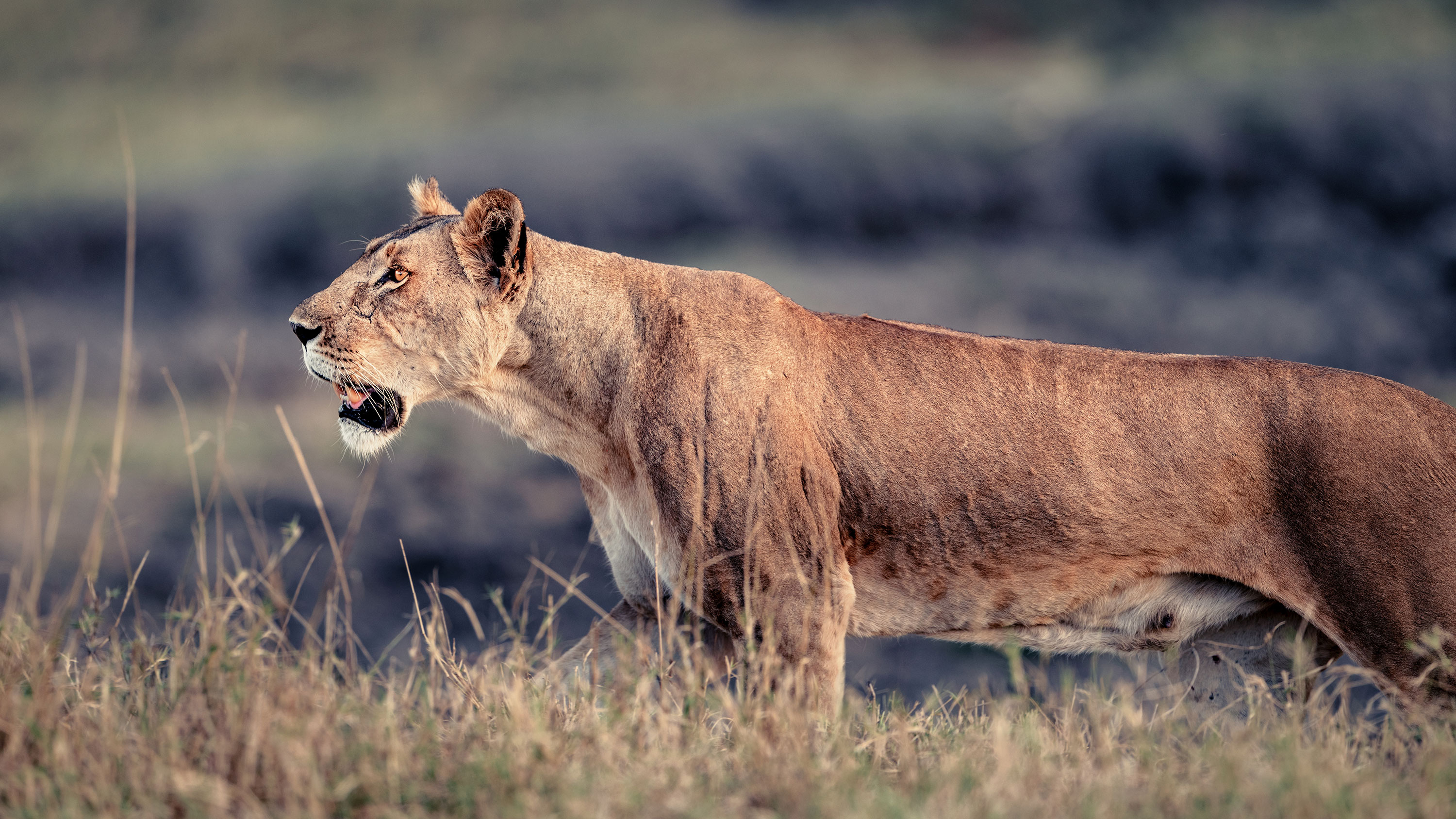
- Franciacorta’s fabulous fizz
- A surfers' road trip in Costa Rica
- A reviving winter break in Cádiz
- A rewilding project in South Africa
- The snowy wastes of Arctic Sweden
- Devon's marvellous winter guests
- South Korea's lively second city
- A pottery holiday in Santa Fe
- The Great Glen by paddleboard
- Meru reborn: Kenya's rising star
- Rock art and wildlife in Botswana
- Hiking from hut to hut in Slovenia
- An off-grid family holiday in Cornwall
- Touring Rajasthan by rail
- Exploring the Maldives by boat
- A road trip in northern Iceland
- Cambodia's vibrant new nightlife
- The lush mountains of Oman
- A soulful beach escape near Lisbon
- Autumn in Logroño
- Montpellier’s youthful energy
- Hiking in the mountains of Mallorca
- A lively city in southern California
- A walk into the wilds of New York
- Relaxing on the Portuguese Riviera
- A lively Turkish beach town
- An autumn escape in Canada
- The railway that Tito built
- A pilgrimage across Essex
- A floating cottage in Finland
- Italy's no-nonsense beach town
- Douro dreams and Porto pleasures
- San Francisco's cautious robotaxis
- The idyllic island of Lombok
- Sailing on a Thames barge in Essex
- Leopard spotting in Thailand
- Two masterpieces in Naples
- Thrills and spills in Snowdonia
- A Cornish pilgrimage
- Canoeing in the wilds of Ontario
- A charming Dutch city
- A peaceful wine valley in South Africa
- Gelato heaven in Bologna
- An ancient burial site on the Gower
- A long walk in Sri Lanka's tea country
- The magic of French night trains
- A "princess-worthy" hike in Australia
- Galicia's lovely thermal baths
- The darkest village in England
- Around the Dales in a camper van
- An enchanting town in Thailand
- An old town in the Canary Islands
- Trekking across Costa Rica
- A paradise for parents in the Alps
- Spring blooms in Cornwall
- Living with cowboys in Arizona
- Wild skating in Sweden
- Chagall's church in Kent
- Wildlife watching on Lesvos
- A gourmet break in rural Portugal
- An epic winter train journey
- Revisiting the Maginot Line
- Australia's other great reef
- The new Colombian cuisine
- The Black Forest by train
- Family fun in Herefordshire
- A seaside rest cure in Denmark
- Staying in a castle in Argyll
- A Caribbean gem in Costa Rica
- An Anglican treasure in Malta
- Wellness in the Caribbean
- A historic train ride in Piedmont
- Staying with the Gladstones
- A surfers' idyll in the Philippines
- Winter walking in Greece
- Narbonne's many charms
- Tbilisi: Europe's 'next Berlin'
- Riding the cobbles of Flanders
- A spiritual retreat in Moray
- A palace in the snow in Sweden
- Big Sky: glamour in Montana
- Raiatea: a delightful island in French Polynesia
- The Algarve's mellow charm in winter
- Beautiful Grenada's dramatic past
- Art and culture in Turin
- A new tour of Mont Blanc
- Highlights of Japan family holiday
- Wilderness walking in the Highlands
- Ski and surf adventure across Chile
- Loch Ness, The Jacobite and Skye rail tour
- Nepal: hike the Forbidden Kingdom
- A £1m three-month family world tour
- An expedition into Chad's Sahara Desert
- A Swiss heli-ski safari
A free daily email with the biggest news stories of the day – and the best features from TheWeek.com
You are now subscribed
Your newsletter sign-up was successful
When you make a purchase using links on our site, The Week may earn a commission. All reviews are written independently by our editorial team.
Sign up to The Week's Travel newsletter for destination guides and the latest trends.
Franciacorta’s fabulous fizz
For those of us who find prosecco too sweet and champagne too dear, Franciacorta is the "Goldilocks" of sparkling wine – "just right", says Julia Buckley in The Times. Sandwiched between Brescia and Bergamo in eastern Lombardy, the region from which it takes its name is marred in part by modern development and sees few tourists. Yet much of it is "startlingly gorgeous", making a tour of its family-run wineries a great delight. I stayed at the Cappuccini Resort (a former Renaissance monastery) and Corte Lantieri, an agriturismo near Lake Iseo (pictured), whose "icy" blue waters are surrounded by "hulking" Alpine peaks. And I enjoyed tastings at Berlucchi (where the first Franciacorta fizz was produced in the 1950s), Faccoli (known for its "minerally" wines), Al Rocol (an old favourite) and Caruna, where the satèn (a uniquely "creamy" wine with "smaller, softer" bubbles) is "dangerously smooth".
The Week
Escape your echo chamber. Get the facts behind the news, plus analysis from multiple perspectives.

Sign up for The Week's Free Newsletters
From our morning news briefing to a weekly Good News Newsletter, get the best of The Week delivered directly to your inbox.
From our morning news briefing to a weekly Good News Newsletter, get the best of The Week delivered directly to your inbox.
A surfers' road trip in Costa Rica
A "favourite of surfers" since the 1960s, Costa Rica is a tropical paradise with beautiful beaches and a "vast" variety of breaks. To sample some of the best, I took a road trip down the country's Pacific coast, says Lindsay McIntosh in The Sunday Times, travelling with a driver-guide, Juvenal Acuña, who is a surfer himself. From "touristy" Tamarindo, near the Nicaraguan border, we travelled 300 miles south to Golfito, just shy of Panama, stopping for nights at hotels near Nosara, Hermosa and Dominical. The surfing was great – I particularly loved the "empty" beach at Jaco, just past Hermosa (where I had avoided the sea owing to dangerous currents) – but equally thrilling were the gloriously wild surroundings (I was even treated to a flypast by red and yellow macaws at a service station Taco Bell). The writer was hosted by Il Viaggio Travel.
A reviving winter break in Cádiz
Cádiz has had a reputation for hedonism since Roman times – and this Andalusian port still stirs the senses even in winter, says Norman Miller in The Sunday Telegraph. Said to be western Europe's oldest city (it was founded by the Phoenicians in around 1100BC), it sits on a promontory and has wonderful sea views, beautiful beaches, and buildings so "colourful" it has been called "Little Havana". By day, there are baroque churches, Roman ruins and art museums to explore. You could spend the evenings sampling the local dishes at the city's wonderful tapas bars. For wilder times, there are "kaleidoscopic" dance shows at the Taberna Flamenco La Cava, or time your trip to coincide with the city's famous carnival (running in 2025 from 27 February to 9 March).
A rewilding project in South Africa
A rewilding project in South Africa Sheep farming has degraded the landscape in parts of South Africa's vast Karoo region – but at Samara, you wouldn't know it. A rewilding project at this private nature reserve began almost three decades ago, said Mike Unwin in The Telegraph, and its monumental mountains and "sun-bleached" plains are now once again home to a spectacular array of animals. Guests at its luxurious lodges stand a good chance of spotting lions, elephants and white rhinos on game drives and bush walks – but equally "engrossing" is the "smaller stuff", including leopard tortoises, meerkats and aardvarks. There are plans to link Samara to similar properties, and so create a protected corridor all the way to the coast, 100 miles south. Guests can help with conservation efforts on site in various ways, such as by planting spekboom, an "unassuming" succulent vital for soil stability. A five-night stay costs from £5,046 for two.
The snowy wastes of Arctic Sweden
In the heart of winter, the snowy mountains and forests of Swedish Lapland "sing a siren song of adventure and deep, soothing quiet" – and there can be few more blissful ways to experience them than a weekend at Niehku, said Sean Newsom in The Sunday Times. Housed in a former warehouse 125 miles north of the Arctic Circle, this stylish 14-bedroom lodge offers two-night packages in January and February that include a variety of outdoor activities, as well as gourmet feasts drawing on ingredients from across Scandinavia. There's a good chance of spotting the Northern Lights; and outings such as the 12-mile snowmobile safari are "wholly thrilling", conveying a "scary" sense of the harshness of these wilds, to which the "finely judged, deftly cooked" food back at the lodge is the "perfect antidote". The two- night package costs from £929pp.
A free daily email with the biggest news stories of the day – and the best features from TheWeek.com
Devon's marvellous winter guests
There's "something out-of-time" about Devon's Exe Estuary, with its old harbour towns, low hills and stretching sandbars – and in winter it is heaven for bird lovers, said Ben Lerwill in The Guardian. From Exeter, catch the train down to Exmouth for "epic" views across it, and hop aboard a Stuart Line boat for a 75-minute bird-watching cruise. Then head halfway back, to Topsham, where the hide at RSPB Bowling Green Marsh and the benches on Goat Walk offer lordly perspectives over the mudflats. Most of the birds that feed here – redshanks, bar-tailed godwits, avocets – have come from summer breeding grounds miles away. At sunset, the sight of their countless "tiny" silhouettes glowing in the low golden light is a "bona fide winter marvel".
South Korea's lively second city
Most tours of South Korea include a few days in Seoul, but the country's second city, Busan, also has much to offer, says Chris Tharp in The Daily Telegraph. Its setting is spectacular, with fabulous beaches on one side and towering, forested mountains on the other. And though Busan – formerly a "rough-and-tumble" port town – feels hyper-modern, with its thickets of "glimmering" high-rises, it also has some "breathtaking" historic sights, such as Haedong Yonggungsa, a Buddhist temple built on rocks by the ocean. Its street markets are "buzzing"; it has some good restaurants, and the city plays host to one of the world's best-known film festivals. Indeed, with lower prices and a milder climate than the capital, you could argue that Busan has "greater tourist appeal".
A pottery holiday in Santa Fe
There's a "rich" and distinctive ceramics culture in the Native American pueblos of New Mexico, and nowhere can you tap into it more easily than in Santa Fe (pictured), says Lia Picard in Travel + Leisure. The city's museums house pottery that dates back centuries, with 12,000 pieces in the "hallowed" vaults of the Indian Arts Research Centre alone. Santa Fe also has a thriving contemporary art scene, with many galleries dedicated to ceramics, including the "venerable" Andrea Fisher Fine Pottery, which specialises in Native American works. And it is a great place to have a go at the craft yourself. I really enjoyed my class at Heidi Loewen Porcelain; and at the Tumbleroot Pottery Pub, my husband, my daughter and I stopped scrolling on our phones and chatted happily over drinks while working at potter's wheels.
The Great Glen by paddleboard
Stand-up paddleboarding doesn't look like the most thrilling of sports, but in the past decade it has surged in popularity, and group events have taken off all over the world. Among the "toughest" is The Great Glen Challenge, says Simon Usborne in the Financial Times, an annual two-day route, along the watery fault line that runs 57 miles across Scotland on a diagonal between Fort William and Inverness. This year, about 40 "hardy paddlers" took part (the challenge takes place in late September, when the weather is unpredictable), and I was among them, having signed up – "rashly" – with just two months to train. The canal sections were easy enough, but Loch Ness felt as "intimidating as an ocean", and navigating the waves on Loch Lochy proved a "white-knuckle" adventure. The journey gave me hours in which to "marvel" at the majesty of the Highlands, and left me both "exhausted", and high on life.
Meru reborn: Kenya's rising star
Meru national park in Kenya is right in the "goldilocks zone", said Holden Frith at The Week. After a long struggle with poachers, the park has been "reclaimed, rehabilitated and repopulated" – but it still feels off the beaten track. The best way to visit its "rich tapestry of habitats" is with SkySafari, whose fly-in tours maximise your time in the bush. The Kenyan itinerary combines Meru with the Masai Mara, where big cat sightings are plentiful. Almost all game drives "include a moment that stays with you", such as a clutch of cheetah cubs "tumbling over each other in the golden hour after sunrise, and trying to climb trees". If you visit between July and September – and you're lucky – you may also see the great wildebeest migration and the predators that follow it.
Rock art and wildlife in Botswana
Wild Paths is a new safari operator that puts together tailor-made itineraries for wildlife enthusiasts looking for something a little different. Kenya by rail, for example, or diving with Sardines off the coast of South Africa. One eye-catching tour of Botswana combines classic wildlife-spotting in the Okavango Delta with an overnight excursion to the Tsodilo Hills, on the western edge of the Kalahari Desert. This remote and seldom-visited landscape is "revered as the spot where creation began" by the San people, who have lived in this area for at least 100,000 years, said National Geographic. The Wild Paths team has formed a partnership with members of the local San community, who will guide you to some of the 4,000 rock paintings that have so far been found. "The ochre handprints on the cliffs are not signatures or decoration," said Chadd Scott in Forbes. "They are the physical, historic manifestations of how the shamans connected with the spiritual through these rocks.
Hiking from hut to hut in Slovenia
Slovenia's Julian Alps are reminiscent of Italy's Dolomites, with their jagged limestone ridges. Anyone looking for slightly easier hiking, however, might consider the neighbouring range, the Karawanks, says Duncan Craig in National Geographic Traveller. Arrayed along the border with Austria, these peaks are gentler, but still impressive, and peppered with "snug and welcoming" mountain huts. On one of Outventure-X's five-night, self-guided treks among these peaks, your route ends amid the tourist crowds beside Lake Bled, Slovenia's most famous sight, with its iconic island church (pictured). But the path until then is wonderfully lonely (old hands will tell you the Karawanks "are basically the French Alps of 40 years ago"). Above the treeline, there are some spectacular wildflower meadows, and the route takes in the craggy peak of Mount Stol, the highest in the range at 2,236m.
An off-grid family holiday in Cornwall
Studies say that half of people aged 16 to 24 feel that they spend too much time online, so I took my teenage children on a digital detox break in Cornwall, says Fiona Whitty in The Daily Telegraph. Set in a 70-acre nature reserve with "regal" views over Looe Bay, our coach house cottage, Windsworth, was "about as off-grid as it gets", with negligible phone reception, a wood-fired stove (for cooking, heating and hot water), and only enough electricity (from solar panels) for a fridge-freezer, lights and a phone charger. Free from digital distractions, the teenagers – who had threatened to boycott the trip – said they felt liberated. We enjoyed long walks, and our evenings (spent reading, playing cards, and soaking in the wood-fired hot tub) were wonderfully "old-fashioned" and relaxing.
Touring Rajasthan by rail
A luxury train with extravagant sleeper carriages, the Deccan Odyssey is a good way to see India in style, says Rashmi Narayan in The Times. It has long carried guests from Mumbai to the great sights of Maharashtra, but from next April it will be offering a new seven-night itinerary, from Delhi to the palaces and forts of Rajasthan. Along the way, it stops at Agra, for the Taj Mahal, and at Ranthambore National Park, where you can go on a safari drive, with a decent chance of spotting tigers. There's a spa, a "mini gym", and two beautiful dining cars, and guides are on hand every day to show you the sights, from the epic palaces in Udaipur to the colourful markets of Jodhpur and Jaisalmer. Among the tour operators offering the train are Distant Journeys and Greaves India.
Exploring the Maldives by boat
Picture the Maldives, and chances are "sprawling" resorts with "lavish" overwater villas will spring to mind. But there are more "adventurous" and "affordable" ways to see this dazzlingly beautiful Indian Ocean island nation, says Hannah Gravett in The Sunday Times. I chose a six-night cruise on a traditional dhoni boat with G Adventures, a trip aimed at "budget-conscious" 18- to 39-year-olds who are happy to share "clean but simple" cabins with bunk beds. Luckily, my fellow passengers were pleasant, and "bonding" with them made the holiday special. So too did the places we went – a series of uninhabited islands with white-sand beaches (for picnic dinners and bonfires under the stars) and coral reefs teeming with spectacular life. Food was good (including lots of traditional curries), the crew were "friendly", and there was time to snorkel for an hour or so twice a day.
A road trip in northern Iceland
Most visitors to Iceland stay around Reykjavík, in the south – but the north is "another country – odder, emptier, even more ethereally beautiful", says Ed Grenby in The Times. It's also more accessible now, thanks to direct flights to Akureyri. On a four-night, fly-drive trip with Regent Travel last November, I explored this lively town of 20,000 people before driving out into a world of "pure car-advert visuals" – towering volcanoes, metallic-blue seas, and "snow-duvet" glens. I rode a horse in the Skagafjörður valley ("Iceland's cowboy country") and a snowmobile around Lake Mývatn (where "smoky fissures" belch forth sulphur amid the "bare black" rock), took a whale-watching boat trip on Eyjafjörður, and – on my final night – bathed in the geothermal baths at Húsavík, gazing across a "blue-green" fjord to "white-topped" mountains, and wished I could stay for ever.
Cambodia's vibrant new nightlife
For a long time after the nightmare of Khmer Rouge rule in Cambodia, Phnom Penh was a "sad, crumbling" place. But "big money" (largely Chinese) has flooded into the country in recent years, and its capital is now one of Asia's great "party cities", says Sean Thomas in The Spectator. Alongside palatial hotels such as Raffles and Rosewood, it has some "deeply charming" boutique hotels (including Penh House and The Plantation). Among its liveliest quarters is leafy, "lantern-hung" Bassac Lane, where ice cream parlours sit alongside Swiss- Japanese whisky bars and unexpected Mexican- German taco joints, and street hawkers sell snacks such as chilli squid rolls. If food is your thing, it is well worth taking a citywide food tour with Kingdom of Wonderlust: their tuk-tuk-driving guides will introduce you to all the most "authentic" eateries and drop you off at Sundown Social Club, a "brilliant" bar overlooking the Russian Market.
The lush mountains of Oman
Most visitors to Oman "flock" to the luxury hotels of Muscat and the fortified city of Nizwa. But the more remote southwestern region of Dhofar is well worth taking in too, says Sophia Smith Galer in The Times. Once famed as a centre of frankincense production, it is better known today for its white-sand beaches and its rugged but amazingly "lush" mountains. If you go, look up the tour operator Ghudu. Run by two Omani women, it can arrange hiking trips, coffee mornings with craftswomen, and meetings with local tribal communities. On my trip, I met a camel herder who carried a rifle to scare off Arabian leopards and invited our group into his hut for a performance of a nana, a "haunting" traditional lament sung in Jabbali, a language that predates Arabic in the region.
A soulful beach escape near Lisbon
It is known as "the Hamptons of Portugal" for its "luxurious villas and gated resorts": José Mourinho owns a house here; George Clooney has invested in a plot. But the Tróia peninsula is not as "stuffy or preppy" as the epithet suggests, says Greg Dickinson in The Daily Telegraph. A spit of land jutting out across the mouth of the Sado Estuary, south of Lisbon, it is a protected area of sand dunes and fragrant pine trees, with a glorious Atlantic-facing beach that rolls on for 40 miles. Part way down the beach is Comporta, a town with a "pleasingly sleepy atmosphere" and some "understatedly cool" beach bars; and a 20-minute ferry ride takes you to the pretty little city of Setúbal.
Autumn in Logroño
Long overlooked by "sunseekers sticking to the coasts", the little city of Logroño in northern Spain has not been spoilt by mass tourism. With its colourful medieval buildings and cobbled streets, it's a charming place, says Libby Ryan in The Sunday Telegraph – and, as the capital of the Rioja region, it is also an oenophile's delight. Glasses of wine are "impossibly affordable" and snacks often superb at its pintxos bars (don't miss "quirky" Umm No Solo Tapas, or "foodie favourite" Tastavin). And there are some great boutique wineries in the surrounding countryside, which is lovely in autumn, when the vines turn "shades of ochre and bronze". Among the best are the family-owned Bodega Viña Ijalba, and the biodynamic Bodegas Moraza.
Montpellier’s youthful energy
Montpellier is one of France's most elegant old cities, says Rhonda Carrier in The Guardian – and also one of the most liveable and lively: you might almost describe it as a "Berlin by the Med". That's thanks partly to money brought in by its hi-tech industries, and partly to a local government that has gone all out for pedestrianisation, bicycle lanes, tree planting and public transport (which is now free to all residents). It has fabulous sights (cathedral, museums, and so on), but you may also find yourself longing to live here, the better to enjoy its lovely parks and "creative villages" (big old buildings housing flea markets, street-food stalls and the like). Montpellier's proximity to the coast – a beautiful 45-minute bike ride away – might seal the deal, along with the swimming in the River Hérault, at the "gorgeous"nearby village of Saint-Guilhem-le-Désert.
Hiking in the mountains of Mallorca
A key part of my recovery from breast cancer treatment has been walking, says Anna Crane in The Times, and nothing has left me feeling stronger or more "intensely happy" than the hiking trip I took to Mallorca's glorious Tramuntana Mountains last May. I opted for a week-long guided group tour with the operator Exodus, which involved five "fairly easy" treks of between four and seven hours each, with nights spent at a "simple" hotel near a beach in Port de Sóller, and at the "tranquil" Santuari de Lluc, a monastery with a guesthouse. There was much to relish on each walk – the "sweeping" sea views, the "earthy" scents of pine, rosemary and juniper, the "sweet chatter of birdsong and tinkling sheep bells". And completing the final trek, which took us up the Puig d'en Galileu (one of Mallorca's highest peaks, at 1,181 metres), left me with "an enormous sense of achievement".
A lively city in southern California
It is often overlooked by visitors to California in favour of San Francisco and Los Angeles, but the state's third city, San Diego, has seriously "cool credentials", says Jacqui Agate in The Sunday Times. A "border town" at heart (it forms an international conurbation with Tijuana, in Mexico), San Diego is more "laid- back" than its northern neighbours, and rich in culture. Since Covid hit, it has seen a big influx of creative types looking for "more balanced lives", who are drawn in part by its sunny summers and glorious coastal setting. As a result, its most charming neighbourhoods are livelier than ever – if you go, be sure to explore North Park (a "hipster" district), Barrio Logan (the city's oldest Mexican quarter) and oceanfront La Jolla. And it has some very stylish new (or recently revamped) hotels, including The Lafayette, Palihotel, and La Valencia.
Rye and its delightful surroundings
With its "wonky" half-timbered houses and old pubs, the Sussex town of Rye (pictured) is one of the loveliest in England. These days, it can get swamped by tourists, says Greg Dickinson in The Daily Telegraph – which is the moment to head out and explore the surrounding area. A couple of miles away sits the beautiful town of Winchelsea, with its "cathedral-like" church. Then there's Romney Marsh, just over the border in Kent, with no fewer than 14 medieval churches (of which the most "iconic" is the wooden-framed St Thomas Becket in Fairfield). And down on the coast are the huge sandy beach at Camber, and Dungeness, the largest expanse of shingle in Europe, where the late filmmaker Derek Jarman's cottage and garden are now open for pre-booked visits.
A walk into the wilds of New York
Path is a "direct conduit from the heart of America's greatest metropolis" to one of its wildest places, the Adirondack Mountains of upstate New York, says Casey Kelbaugh in The New York Times. Conceived by the meteorologist Vincent J. Schaefer in 1930 – and named for a line in Walt Whitman's "Song of the Open Road" – this 358-mile trail has been built, bit by bit, by volunteers in the decades since, and is almost finished. Yet few people are aware of it: walking it in the summer, I came across no other long-distance hikers. I enjoyed the trip very much, relishing the views from the outset, and watching with satisfaction as the forests became "messier", the rivers "clearer", and wildlife encounters more frequent.
Relaxing on the Portuguese Riviera
An "aristocratic holiday hotspot" since King Luís I began visiting in the 1870s, the Portuguese seaside resort of Cascais makes a lovely escape from Lisbon, 18 miles east, says Karlina Valeiko in National Geographic Traveller. European royalty fled here during the Second World War; and recently, wealthy foreign retirees have been snapping up the town's 18th and 19th century mansions. It has some good museums (including one housing paintings by Paula Rego), and several chic restaurants. It also has some stylish boutique hotels, although the area's grande dame is the Palácio Estoril in neighbouring Estoril. Ian Fleming stayed there during the War (its bar attracted both British and German spies), and the opening scenes of On Her Majesty's Secret Service were filmed in the hotel and at the Praia do Guincho, one of many beautiful sandy beaches around Cascais.
A lively Turkish beach town
For the "movers and shakers" and "party people" of Istanbul and Ankara, the "cute" Aegean town of Alaçatı is a favourite summer retreat, said James Litston in The Times. With its lively bars, "chic" beach clubs and "let-your-hair-down buzz", it might remind you of Mykonos or Ibiza, but unlike them, it is pleasingly inexpensive and sees few foreign tourists. It has also escaped the rush to modernisation that has blighted some Turkish beach towns: its beguiling historic heart remains intact, full of old stone mansions with colourful shutters, and "bougainvillea- clad" squares and cobbled lanes where stalls spring up on Saturdays selling "fresh produce, cotton throws and donkey-milk soaps".
An autumn escape in Canada
With its "pristine" white-sand beaches, many wineries and stylish boutique hotels, Canada's Prince Edward County is often likened to the Hamptons. A large peninsula on Lake Ontario, it lies 100 miles east of Toronto, and makes for an easy escape from the city, said Laura May Todd in The Sunday Telegraph. The Sandbanks Provincial Park is great for swimming, sailing and sunbathing in summer, and for hiking and kayaking in autumn, when its forests "turn shades of fire-engine red and gold" and the crowds depart. Autumn is also a good time to tour the county's independent vineyards, which celebrate the harvest from late November with the Wassail, a series of weekend parties and events.
The railway that Tito built
Wending its way through the Balkans from the heart of Serbia to Montenegro's "craggy" coast, the Belgrade to Bar line is one of Europe's most "cinematic" railways, said Camilla Bell-Davies in The Guardian. Built on Marshal Tito's orders and opened "to great fanfare" in 1976, it fell out of use in the 1990s but was revived in 2016, with comfy new sleeper carriages. Hop aboard in Belgrade and consider breaking the 11-hour journey at Serbia's rugged Tara National Park, or at Montenegro's beautiful Lake Skadar, to enjoy the regional delicacy of pickled carp.
A pilgrimage across Essex
In the 7th century, St Cedd was dispatched from Lindisfarne to convert the pagans of the East Saxon kingdom (also known as Essex), and he built the chapel of St Peter's there. Today, St Peter's is among the oldest still-intact churches in England – and you can reach it by walking the St Peter's Way, said Oli Smith in The Telegraph. Created by ramblers in 1970, this 40-mile path is intended to evoke Cedd's evangelising journeys. It begins six miles beyond the end of London's Central line, at St Andrew's, Greensted, an 11th century building said to be the world's oldest wooden church. And it proceeds eastwards, dodging Chelmsford and Billericay, to the wild Dengie Peninsula. Here, Essex "frays into the sea, through salt marsh and mud", and – beyond Bradwell, with its decommissioned nuclear power plant – Cedd's simple chapel stands alone beside the waves.
A floating cottage in Finland
Plenty of Finns own enviable waterside holiday cottages – but what is more "dreamy" is to explore the country's endless, interconnected lakes in a houseboat, says Liz Edwards in The Sunday Times. On one of Discover the World's trips, you pick up your boat from Heinola (left), two hours' drive northeast of Helsinki. Then, following a helpful demonstration, you are left to your own devices. The boats are spacious, with "good-sized" beds, floor-to-ceiling windows at the front, and saunas, for the full Nordic "back-to-nature fantasy". There's no end of uninhabited islands to explore, and foraging for food – from chanterelle mushrooms to blueberries and loganberries – can be fun. Go in summer, and you'll enjoy long, light and blissfully peaceful evenings, making swimming a delight.
Italy's no-nonsense beach town
The Tuscan seaside receives relatively few foreign visitors – which adds to the appeal of its "laid-back" resorts, says Lee Marshall in The Sunday Telegraph. Castiglione delle Pescaia, for instance, is pleasingly "unpretentious", with a "pleasant" modern part, and a "solid rather than pretty" old town. To its south lies a five-mile-long sandy beach backed by dunes and a forest of umbrella pines. To its north sits Roccamare, "a cluster of striking modernist villas" whose owners have included Sophia Loren and Georg Solti; and, beyond that, another nice beach resort, Le Rocchette. There are some lovely places to stay – such as L'Andana (which has a Michelin-starred restaurant), and Il Baciarino – and not far inland the state-of-the- art winery at Le Mortelle is well worth a visit.
Douro dreams and Porto pleasures
Get ready to set sail on a breathtaking eight-day journey with Scenic River Cruises that cuts through the heart of Portugal, beginning in the lively, 2,000-year-old city of Porto. The second-largest city in Portugal is famous for its port wine, stunning bridges and the francesinha: a sandwich coated in a tomato and beer-based sauce that is a must-try – and one that continues to divide opinion. If you aren't too full from the culinary delights, or too merry from the rich taste of aged port, discover this bustling city that pulses with history and charm. This cruise offers the ideal opportunity for travellers to disembark and experience things first-hand while strolling through Porto's narrow streets on a guided tour. It's impossible not to marvel at the historical buildings adorned with intricate tiles, and the vibrant street art on the walls. Your journey will continue to Régua, the gateway to the stunning Douro Valley. From here, you'll be able to explore the hidden gem of Lamego, known for its majestic baroque stairway leading to the Santuário Nossa Senhora dos Remédios church with its stunning views. As your Portuguese adventure nears its end, a magical evening awaits. The penultimate night treats guests to an exclusive Scenic Enrich experience, offering a classical concert in Porto's Gothic-style Church of São Francisco, a masterpiece of religious architecture, where the gilded interiors and awe-inspiring altars make it an unforgettable evening. The eight-day Delightful Douro cruise is priced from £2,499pp, including flights, transfers, free Wi-Fi, food and beverages.
San Francisco's cautious robotaxis
Plying the streets of San Francisco since last August, self-driving taxis have become "the city's latest tourist attraction", said Lauren Sloss in The New York Times. Operated by Waymo (which is owned by Alphabet, Google's parent company), the vehicles are electric Jaguar I-Paces fitted with radar, lidar, sensors and cameras, and remotely monitored by a real-life customer-support team on the look-out for "unsafe activity". Riding in one feels "futuristic" at first, but they tend to be "cautious" and "quite slow", and the chief thrill is often the attention you get from other tourists. Safety concerns have triggered a "public backlash" and a federal investigation, though the company's data suggests they're safer than cars with human drivers. The ride-hailing app has a waiting list, so join it well before you're due to fly.
The idyllic island of Lombok
It lies two hours by boat from Bali, and is quite as beautiful and only a little smaller, at 50 miles from top to toe. But the Indonesian island of Lombok sees far fewer visitors than its over-touristed neighbour, said Leyla Rose in The Times, and feels "a world away". You might stay in the south, in the area around the "lively" town of Kuta, with its "high-end" resorts and "stunning" white-sand beaches. But don't miss the old royal temples and gardens of Mataram, Lombok's main city, in the west – or the chance to climb "majestic" Mount Rinjani, Indonesia's second-highest volcano at 3,726m. The three tiny Gili Islands, 20 minutes away by boat, make for a relaxing final stop – each a tropical idyll with turquoise waters, "chirping" birds and "swaying" palms.
Sailing on a Thames barge in Essex
In their heyday, from the 1880s to the 1930s, Thames barges carried cargo all over England and beyond (the larger ones were seaworthy). These flat-bottomed commercial sailing boats played a key role in our maritime history, but few survive – so it's a thrill to be able to take a trip on Pudge, said James Stewart in The Sunday Times, a 92ft-long wooden barge, dating back to 1922, with beautiful "rust-red" sails, which was recently restored by the Thames Sailing Barge Trust at a cost of £767,000. Pudge (pictured) spent most of its working life carrying cargo between Ipswich and London, but also took part in the evacuation of Dunkirk in 1940. Now, it is moored in Maldon, Essex, and crewed by volunteers on regular voyages down the Blackwater estuary. Guests can book a cabin or charter the whole thing, and are free to "haul ropes" or not, as they prefer. It's "a joy to be aboard, like time out from life", and there are chances to go onshore, to swim, dine or explore.
Leopard spotting in Thailand
Kaeng Krachan is Thailand's biggest national park and is remarkably easy to reach – being only a £12 taxi ride from the "ritzy" beach resort of Hua Hin (itself a £1 train ride from Bangkok), said Tristan Rutherford in The Times. Of the large mammals found in this jungled mountain landscape, tigers are rarely seen, but on my three-day trip, I saw a leopard, a sun bear and an elephant. To increase your chances, book an experienced naturalist guide such as Kaittisak Klomsakun of Kob Trekking for a day, and stay at the campsites within the park (where tents can be hired). Bring binoculars, too – the park is "a regular Clapham Junction for birdlife" – and there are also plenty of monkeys, such as dusky langurs (which look like "wide-eyed teddy bears") and white-handed gibbons.
Two masterpieces in Naples
Caravaggio's last painting, "The Martyrdom of Saint Ursula", is currently at the National Gallery in London, on loan from the Gallerie d'Italia in Naples. But two other late masterpieces by the artist remain in the Italian city, where he painted them between 1606 and his death in 1610 – and a trip to see them rewards the effort, said Nick Trend in The Telegraph. "The Flagellation of Christ" is perhaps the most "powerful" of all Caravaggio's works, and "The Seven Acts of Mercy" brilliantly evokes the "teeming, threatening" urban world he frequented. Often seen as a turbulent character, Caravaggio was clearly drawn to the "seedy" side of the city, and its labyrinthine historic centre still retains something of the atmosphere – crowded, claustrophobic, edgy, "intense" – that it must have had in his day.
Thrills and spills in Snowdonia
In the 11 years since the launch of Snowdonia's first Zip World, three more of these adventure activity centres have opened nearby. You might choose to come here for the "magnificent landscapes and communion with Mother Nature", said Sean Newsom in The Sunday Times – but the "high-adrenaline pursuits" they offer are enjoyable enough to justify a family trip to the national park on their own. The original Penrhyn Quarry site can still lay claim to the world's fastest zipwire, Velocity, which was the most "silly, scary and euphoric" thing I've ever done. But I won't forget the mountainside roller coaster at Betws-Y-Coed either, or the slide at Conwy, which has a final uptick that flings you several metres into the air and onto a giant cushion. The cost of individual activities soon adds up, however – so it's worth going online and deciding which to do before you leave home.
A Cornish pilgrimage
Among England's loveliest pilgrims' paths is St Michael's Way in Cornwall, said Phoebe Smith in The Guardian. At only 14 miles long, it can be walked in a day – but, approached in the right spirit, such short pilgrimages can yield as deep a sense of meaning as much longer routes. Crossing the county near its western tip – from Lelant, on the north coast, to St Michael's Mount, on the south – it forms part of the Camino de Santiago, and was used in the Middle Ages by Welsh and Irish pilgrims keen to avoid the perilous seas around Land's End. There's much to see along the way, including the medieval church of St Uny and the pirate's grave ("with skull and crossbones") at Gulval – and St Michael's Mount, a tidal island crowned by a medieval castle and chapel, makes for a spectacular finale.
Canoeing in the wilds of Ontario
Stretching across 600 square miles on the northeast shore of Lake Superior, Ontario's Lake Superior Provincial Park is "Canada at its most Canadian", said Sarah Baxter in The Telegraph. It's worth simply driving through it, along the Trans-Canada Highway from the nearby city of Sault Ste Marie – the views of boreal forest, lakes and ancient rock formations are "spectacular". And it's a great place for a camping and canoeing trip with a local tour operator such as Forest the Canoe. On one of its adventures, you might pitch your tent by the shores of Mijinemungshing Lake, where there's a fire pit, a picnic table and even a thunderbox (bush loo). The lake swimming is "verging-ontranscendent", even in the rain. The trip costs from £393pp (forestthecanoe.ca).
A charming Dutch city
With its handsome medieval centre, gabled merchants' houses and tree-lined canals, Utrecht is a beautiful and lively place to while away a long weekend, said Mike MacEacheran in The Sunday Times. For a fabulous overview, climb the 465 steps of the 14th century Dom Tower – the city's pride and joy, and the tallest bell tower in the Netherlands. Visit the Rietveld Schröder House, Gerrit Rietveld's pioneering modernist masterpiece, designed according to the principles of De Stijl, the Dutch artistic movement of which Piet Mondrian was another leading member. And, if visiting with children, don't miss the colourful Nijntje Museum, which celebrates the work of the author and artist Dick Bruna, creator of the "cutesy" rabbit Miffy ("a local treasure"). Utrecht is one of the world's most bicycle-friendly cities – "the best way to get around the stag-do-free streets" – and is also great for kayaking, with vessels to hire for £7 an hour from Kayak Utrecht.
A peaceful wine valley in South Africa
The Hemel-en-Aarde Valley is one of South Africa's most beautiful wine regions, said Sidonie Wilson in The Times; and being less well known than Stellenbosch and so on, it's blissfully quiet, too. A 90-minute drive from Cape Town, it is surrounded by mountains, close to the pretty seaside town of Hermanus (great for whale-watching). It has some lovely "farm getaways", such as the Hemel 'N Aarde Stud Farm, where the "eco-cabins" have wood-fired hot tubs and fine views. And its dozen-or-so wine estates are "laid-back", easy to reach and pretty, with their Cape Dutch buildings and "bougainvillea-draped stoops". Most have tasting rooms, and some also have restaurants and accommodation (the Creation estate, for instance, has a "slick" modern holiday villa).
Gelato heaven in Bologna
Made with less fat and sugar than most ice cream, gelato is often more strongly flavoured too. For fans looking to learn more about gelato (or simply to eat it), a trip to Bologna is in order, said Xanthe Clay in The Telegraph. Nicknamed La Grassa (The Fat One) for its fabulous food, this ancient university city has some excellent gelaterias, such as Sablé Gelato, where flavours vary from week to week and are generally "exquisite", and all ingredients are comprehensively listed (the Bolognese saffron and rose water was among my favourites). It's also worth making an excursion to the city's suburbs, where the "revered" gelato machine-maker Carpigiani runs a variety of intensive courses at the world's only university of gelato. Visitors can take part in a gelato-making class as part of a tour of the Carpigiani Gelato Museum, which is "packed with fascinating antique equipment, interactive exhibits and displays".
An ancient burial site on the Gower
Perched halfway up a sea cliff on the Gower Peninsula, in southwest Wales, Paviland Cave is the site of the oldest known ceremonial burial in western Europe, said Oliver Smith in the FT. It was here that, in 1823, the geologist Reverend William Buckland unearthed the Red Lady of Paviland – a fossilised skeleton he took to have belonged to a Celtic prostitute from the time of Christ. Modern science has since shown that the Lady was, in fact, a young man who lived during the last ice age, some 34,000 years ago. The skeleton is now held at the University of Oxford, but for those with a feeling for these things, the cave is well worth a visit even so. Chapel-sized, it echoes with "the mesmeric music of the sea". Given its awkward location, it is best reached with the help of an outdoorsy local guide, such as bushcraft instructor Andrew Price (dryadbushcraft.co.uk).
A long walk in Sri Lanka's tea country
A walk along the Pekoe Trail, winding for 186 miles through the forests and tea plantations of Sri Lanka's central highlands, is a great way to discover this beautiful region, said Erin Vivid Riley in Travel + Leisure. Created last year, it ties together older paths between the ancient city of Kandy, with its stupas and temples, and the "picturesque" old hill station of Nuwara Eliya, and offers the chance to visit many villages along the way. Among the highlights of the route are the "dramatic" Nine Arch Bridge, a colonial-era railway viaduct, and Lipton's Seat, a panoramic overlook apparently beloved by the Scottish tea merchant Sir Thomas Lipton. The whole journey should take a "laid-back" 22 days, but operators such as Mountain Kingdoms and Wild Frontiers offer shorter trips with transfers by car between sections of the trail.
The magic of French night trains
Many of France's overnight rail services were axed a decade ago, but now – as part of President Macron's push to "rejuvenate the economy of deep provincial France" – these "lost lines" are being revived, said Sally Howard in The Sunday Telegraph. Rebranded as Intercités de Nuit, they are slower than most daytime services, and they have couchette compartments with bunks, rather than sleeper berths with beds and washbasins. But they are "full of character" (I liked the "funny little two-tone sleeping bags") and can easily induce a childlike sense of adventure, as they whisk you through the glittering lights of Paris and out into the silence and darkness of la France profonde. Among the loveliest destinations are Aurillac, Cerbère, Hendaye and Briançon. For good advice on booking, go to seat61.com.
A "princess-worthy" hike in Australia
Like many middle-aged walking enthusiasts, I crave the "raw thrill of nature" – but want also to enjoy "princess-worthy comfort", says Fiona McIntosh in The Times. Fortunately, operators are increasingly catering to this seemingly contradictory ambition, and perhaps nowhere more so "than in the wild reaches of Australia". With Walk into Luxury, I hiked the Cape to Cape trail in Western Australia – a spectacular 76-mile route that meanders along the coast (pictured). Over four days, our small group was guided through a landscape of "dazzling beauty": we explored limestone caves, walked through "ghostly petrified forests" and spotted dolphins. And each night, we returned to the fabulous Injidup Spa Retreat, and feasted on "extraordinary food"; walkintoluxury.com.
Galicia's lovely thermal baths
There are many reasons to visit the town of Ourense in Galicia, northwest Spain – from the "twisting cobbled streets" to the many delicious tapas bars. But Ourense's "main draw", says Adam Turner in The Guardian, is undoubtedly its thermal springs, which have been popular since at least Roman times. There are several hot spring complexes dotted in the countryside around the town, most with spectacular views. Many are council-run, and so are free to use; others are private, but still pretty cheap. If you go, make sure to visit Termas de Outariz, a private spa overlooking the "thundering" Minho river, and which – unlike the public facilities – stays open till 11pm. With its "curved, wooden Japanese-style construction", it's a magical spot for "moonlit bathing".
The darkest village in England
For those fond of stargazing, there's no better place in England to visit than Hawnby, on the North York Moors, says Helen Pickles in The Daily Telegraph. The moors were declared an International Dark Sky Reserve in 2020 – since when they have even had their own "dark skies officer". And the village of Hawnby (population 193) has fully "embraced the project": lighting has been altered throughout the village – including in people's homes – to minimise light pollution. As you walk around the village, you notice that light shines only where it's needed – and never into the sky. Curiously, the absence of visual distraction makes the countryside seem much noisier than normal; and wandering about in the darkness can be a bit unnerving – but the flipside is that the skies are "gloriously uncontaminated": on a clear night, you can see Jupiter, and the "hazy glow" of Andromeda, our nearest big galaxy. The Owl at Hawnby has b&b doubles from £130.
Around the Dales in a camper van
Few consumer items embody an ideal of "freewheeling spontaneity" as completely as the VW camper van. The desire for one struck me (along with middle age) with alarming intensity this year, said Ben Machell in The Times. Sadly, they're not cheap – but I can recommend hiring one for a short trip. From the "friendly" Liberty Campers in Ilkley, I was able to rent one for four nights for £495, and used it for a family tour of the Yorkshire Dales – a test run that fulfilled my hopes and won over all the sceptics among us. The beds were so much more comfortable than camping mattresses, and being able to drive off without having to take down a tent each morning was bliss. We used the Park4Night app, which is great for good ideas on where to stop along your way.
An enchanting town in Thailand
Some 60 miles from Chiang Mai in northern Thailand, Lampang is a "charming" riverside city that sees far fewer foreign tourists than its more celebrated neighbour, said Patrick Scott in The New York Times. Lampang lay at the heart of the powerful medieval Lanna kingdom, and is still home to many temples, including the 15th century Wat Phrathat Lampang Luang, which is sometimes described as the country's oldest surviving wooden structure. Elsewhere, there are leafy streets lined by merchants' mansions dating from the city's second heyday, as a centre of the timber trade in the late 19th century. It's a delight to stroll around them – or to ride around in one of the horse-drawn carriages that were introduced here in 1916. And there is no shortage of good cafés and restaurants to drop into, some of them occupying the town's "well-preserved" old Chinese shophouses.
An old town in the Canary Islands
With a cosmopolitan ambience and a refreshing absence of high-rise hotels, the old fishing town of Corralejo is a Canary Islands resort for people "who don't like resorts", said Robin McKelvie in The Daily Telegraph. Perched near the northern tip of Fuerteventura, it is hemmed in by the vast dunes of the Parque Natural d Corralejo, a miniature Sahara fringed by white- sand beaches. The fishermen's cottages ofits old town now house a growing number of "esoteric eateries" and boutiques, many of them run by incomers of various nationalities. Yet the level of tourism here doesn't feel overwhelming, and the atmosphere is wonderfully "relaxed". Indeed, you could easily while away several weeks here, with just occasional drives or hikes to nearby villages such as El Cotillo (where there is excellent seafood) and Lajares, with its pleasant surfers' cafés.
Trekking across Costa Rica
A hike along the 174-mile Camino de Costa Rica is a great way to see some of the wilder parts of this beautiful Central American nation, says Jen Murphy in Travel + Leisure. Created ten years ago, it connects the Caribbean and Pacific coasts, and takes in 25 rural settlements, as well as habitats ranging from mangrove swamps to cloud forests. Trekkers stay at local homes and family-run lodges, making it a "culinary tour, and a cultural deep dive" as much as a "walking safari". Parts are remote and "physically challenging", so it's a good idea to hire a guide (UrriTrek is reliable), who should also be able to identify much of the flora and fauna you're likely to see, including sloths and monkeys. Visit urritrekcostarica.com and caminodecostarica.org for more information.
A paradise for parents in the Alps
Centred on an old farm in Italy's Dolomite Alps, Sonnwies (pictured) is a family-owned, family-only hotel that strikes a near-perfect balance between adults' and children's needs, says Jenny Coad in The Times. With its panoramic windows, wooden walls and floors, and excellent spa, it's as serene and stylish as a place with such a high toddler quotient could be, and its clientele tend to dress smartly. But you can be sure of "no tutting" or eye-rolls about boisterous behaviour in the fine-dining restaurant, and the facilities for younger guests include a five-pool aquapark, a petting zoo, a huge adventure playground and a dazzling kids' club with baby room. There's a ski slope for beginners, but the nearest resort, Plose, is 30 minutes away by bus – which adults may feel is too far to venture while leaving children in the care of the hotel. Rooms for two adults and two children cost from £529, half-board (sonnwies.com).
Spring blooms in Cornwall
"Spring awakens early in Cornwall," says Fiona Kerr in The Guardian – and for garden lovers, it is the county's "standout season". Stay near Falmouth at Hotel Meudon, which has "mid-century-style" rooms and a restaurant that "showcases local produce". Set in the "sheltered folds" of the Helford Valley, its nine acres of subtropical gardens bloom "in a soft blaze of colour". There's a foxglove tree whose purple flowers "smell of parma violets", and wild garlic and bluebells flank the path down to Bream Cove – perfect for a quick dip. From 23-24 March, Falmouth holds its Spring Flower Show. And there are other "glorious" gardens nearby, including Trebah and Glendurgan (just west along the South West Coast Path), Trelissick, "jungle-like" Penjerrick, and Enys, with its "spectacular" meadow of bluebells. Rooms from £129, b&b (meudon.co.uk).
Living with cowboys in Arizona
The first dude ranches opened in the late 1800s, to lure "wealthy folks" from the eastern US out west for a taste of the cowboy life. Many of these ranches are still going strong, says Jacqui Agate in The Daily Telegraph, and in Arizona, eight of the oldest now form part of the Arizona Dude Ranch Heritage Trail. At some, such as the "upscale" Rancho de los Caballeros, there are new activities on offer, including archery and golf. But at all, "working cattle ranch experiences" and trail rides on horseback remain central to the experience. To get a sense of the variety of the state's landscapes, it's worth visiting more than one, from White Stallion (in the Sonoran Desert, with its "skyscraping saguaro cacti") to Sprucedale, set among "skinny" pine trees by the New Mexico border.
Wild skating in Sweden
Home to hundreds of lakes that freeze over from December to March, central Sweden is one of the best places in the world for wild skating, says Elizabeth Hewitt in Travel + Leisure. It's a "thrilling" pursuit, but "serene" too, at least if you go with an experienced guide who can spot dangers lurking beneath the surface. The "conservation-minded" outfitter Green Trails is ideal, with expeditions around Stockholm for guests of all skill levels. On my trip, we skated 20 miles in a single day, on lakes Mälaren and Yngern, stopping to grill sausages on sticks over a campfire. Best of all was the late afternoon, when I found myself on thin, smooth ice, zipping along so fast that the pine trees and their long shadows became "a blur" in the "honey-coloured" winter light. A two-day trip costs from about £380; thegreentrails.com
Chagall's church in Kent
The Belarusian-born modernist artist Marc Chagall often worked in stained glass in his old age, producing windows for Reims Cathedral, the UN building in New York, and elsewhere. Closer to home for many British admirers is the work he did at All Saints' parish church in the Kentish hamlet of Tudeley, says Dixe Wills in The Guardian. Following the death of their daughter, Sarah, in a sailing accident in 1963, Sir Henry and Lady d'Avigdor-Goldsmid commissioned a single window in her memory. But when Chagall visited the church for its installation, he pronounced the building "magnificent", and proclaimed – with reference to its 11 other windows – "I will do them all!" And over the next 15 years, he did. The church, a 45-minute walk from Tonbridge Station, doesn't look exceptional from outside, but inside, Chagall's windows, with their "luscious" colours and images of "people and animals on the move", may leave you feeling "a little awestruck".
Wildlife watching on Lesvos
Biological science is often said to have its roots in the studies of plants and animals that Aristotle undertook on Lesvos (also known as Lesbos) in the fourth century BC. This large Greek island remains a paradise for wildlife watchers, says James Lowen in The Daily Telegraph, especially during the spring and autumn, when a host of migratory birds pass through it. On one of Wildlife Travel's week-long trips, guests stay at Hotel Malemi in Skala Kallonis, where Aristotle lived, and tour the island with expert guides. As well as the diverse avian life – from the rare, finch-like cinereous bunting to flamingos and black storks – there is a dazzling array of reptiles, amphibians, butterflies, and dragonflies. Most impressive of all, however, are the flowering plants (pictured), of which our guide counted 20 species in a single square metre. Tours cost from £1,995pp, including flights.
A gourmet break in rural Portugal
Only 90 minutes by car from Lisbon, the hilltown of Estremoz is a great place for a "low-key" weekend break, says Paul Richardson in The Sunday Telegraph. It lacks the "high-wattage beauty" of better-known towns in the Alentejo region, such as Évora and Monsaraz, but its old centre has a "special radiance", thanks to the white marble from which it is built. It also has the best food and antiques market in the region, a "legion" of bric-à-brac shops, a "clutch of museums", and two excellent restaurants run by the same team: Mercearia Gadanha and Casa do Gadanha both serve "fresh-faced" contemporary dishes that make the most of the region's superb produce. Casa do Gadanha also has "rustic-minimalist" rooms from £120 per night, including breakfast.
An epic winter train journey
Canada is never more beautiful than in the depths of winter, when the land is deep in snow, and the air is "crisp, clean" and "life-affirming". For rail aficionados, the best way to take it in is on a four-day, 2,750-mile trip from Vancouver to Toronto aboard the Canadian, says Adrian Bridge in The Sunday Times. Built in the 1950s, this "gleaming stainless-steel wonder" has two observation decks – which are rarely crowded in the colder months, and which offer huge views of the ever-changing landscape, from the drama of the Rockies to the prairies of Saskatchewan and Ontario's forests and lakes. It's a great opportunity for "quiet contemplation", but there are diversions (including "lively talks") for those who want them, as well as convivial company and good food, served in a dining car with linen tablecloths and "cheery" service. Tickets cost from £670pp; viarail.ca
Revisiting the Maginot Line
They are often ridiculed as one of history's great white elephants – but it's hard not to be impressed by the forts of the Maginot Line, says Anthony Peregrine in The Sunday Times. Built in the 1930s to defend France's border with Germany, these huge concrete bunkers were the biggest European engineering project of their age, and were never actually tested (the Nazis invaded via Belgium and the Ardennes Forest, which the French high command had deemed impenetrable). If you only visit one, opt for the largest – Hackenberg, in Lorraine, an "underground town" with six miles of galleries and 19 artillery blocks.
Australia's other great reef
They're not as famous as the Great Barrier Reef, but the Rowley Shoals (pictured) – three coral reefs off Australia's northwest coast – are healthier and perhaps more beautiful, says Ruaridh Nicoll in the FT, making them "one of the finest places to scuba and snorkel anywhere". You can explore them on a five- night trip from Broome on board True North II, a 34-metre yacht skippered by Craig Howson, who has been leading tours around this wild corner of Australia since the 1980s. The trip costs from £3,400pp; truenorth.com.au
The new Colombian cuisine
Latin America has experienced a culinary revolution in recent years – and the latest city to follow where Lima and others have led is the Colombian capital Bogotá, says Nicholas Gill in National Geographic Traveller. What makes its dining scene so exciting – beyond the brilliance of individual chefs – is a new focus on Colombia's regional cuisines and on diverse native ingredients, from plump mojojoy to fruits such as the "fragrant but tart" curuba.
The Black Forest by train
Stopping at "enchanting" towns as it winds through the "sweeping" mountains of the Black Forest, the Höllentalbahn (or Hell Valley line) is one of Germany's most beautiful railways, says Mike MacEacheran in The Guardian. The journey along its entire length only takes 90 minutes, but it's worth spending a few days over it. In Donaueschingen – where the River Danube rises – you should visit Haus Fürstenberg, a bright yellow château beloved of Kaiser Wilhelm II, and the palatial 18th century Fürstenberg brewery. Then there's the lake of Titisee, a popular spa destination that's wonderful for ice-skating in winter; and the pretty village of Hinterzarten (also charming in the snow). A night at the old farmstead of Ospelehof can be recommended (the food is "terrific"), before the final, spectacular leg of the journey brings you to the glorious medieval city of Freiburg.
Family fun in Herefordshire
Farm stays for families with small children don't come much more "enchanting" – or blessedly comfortable – than Drovers Rest, says Gemma Bowes in The Times. This smallholding near Hay-on-Wye has six huge safari tents with all mod cons and three stone holiday cottages, each sleeping four. There are lots of "dinky" rare-breed animals to pet and feed, including pot-bellied pygmy goats, Falabella ponies and Ouessant sheep. Other diversions include table tennis and a "wild playground". Locals "stream in" to eat at the "industrial-chic meets barn-boho" restaurant, where the South African owners cook "scrumptious" food with influences from their homeland, including the use of a braai. And there's much to do nearby – from visiting Hay's bookshops to walking the Offa's Dyke Path or canoeing on the Wye.
Tents cost from £130 per night for four (droversrest.co.uk).
A seaside rest cure in Denmark
After struggling to recover from a hip operation, I fancied an old-fashioned "rest cure" by the sea, says Kat Brown in The Sunday Times – and found the perfect place in Denmark. As far as I can tell, there's nowhere in the UK quite like the Kurhotel Skodsborg. A former royal palace set between the sea and a peaceful nature reserve, it became a sanatorium in 1898, and now has onsite medical centres specialising in physio and sleep-related treatments. I spent most of the time in the spa, however, and particularly enjoyed the saunagus, a combination of sauna, aromatherapy and cold-water dipping in an outdoor plunge pool or the sea. The plant-based food in the restaurant was "moreish", and I left after three days feeling "utterly restored". Doubles cost from £236 b&b.
Staying in a castle in Argyll
A "bijou" 16th century stronghold recently refurbished as a holiday let, Kilmartin Castle is a great base for a break in the Scottish Highlands, says Gemma Bowes in The Times. Situated near the coast of Argyll, in the village of Kilmartin – a twohour drive northwest of Glasgow – it has five "romantic" bedrooms, most of which have deep copper baths, log-burners, and "hip" art (from cinema posters to plastic Pac-Man Ghost statues). There's a swimming pond, a private chef if needed, and excellent guides on hand to lead hiking and kayaking trips (look out for sea otters). Best of all, however, are the archaeological wonders of the Kilmartin Museum and Kilmartin Glen. The Iron and Bronze Age sites here (including Dunadd hillfort, the capital of the Gaelic kingdom of Dál Riata) have few equals in the UK. The castle sleeps ten, from £2,940 for three nights self-catering.
A Caribbean gem in Costa Rica
A "dusty, ramshackle" town on Costa Rica's Caribbean coast, Puerto Viejo de Talamanca is a "glorious" place, says Mark Palmer in The Mail on Sunday. Its indigenous people, the Bribri tribe, are still going strong, and so is the Jamaican community that settled here around 1900, bringing "cricket, maypole dancing and an interest in Shakespeare", among many other things. More recently, an international array of artists, hippies and surfers has joined the mix. Stay at Aguas Claras, a nearby hotel with "cabanas on stilts" beside a beach so beautiful and unspoilt, it made me think of "what Barbados might once have been like". And don't miss the Cahuita National Park, a nature reserve with an "important" coral reef and a forest where visitors often see sloths, raccoons, monkeys and more.
An Anglican treasure in Malta
Chunks of masonry began falling off it eight years ago, but thanks to a major funding campaign and a restoration project, the spire of Valletta's St Paul's Anglican Pro-Cathedral is safe once more. Its "honey-hued" spire dominates the skyline of Malta's capital, says Juliet Rix in The Daily Telegraph, and the building it crowns (a cathedral without a bishop, hence the "Pro") is well worth a visit. Commissioned in 1838 by William IV's widow, the Dowager Queen Adelaide, it was modelled on London's St Martin-inthe-Fields, and has been "an embodiment of Anglo-Maltese relations" since the 19th century. Princess Elizabeth and Prince Philip worshipped here when they lived in Malta (from 1949 to 1951), and inside the church there are memorials relating to the Allied effort in the Second World War, in which Malta played such a crucial role.
Wellness in the Caribbean
I used to be a spa junkie, but these days I prefer something "less demanding", says Shane Watson in The Times – "an old-fashioned holiday with wellness benefits".
This winter, I found the right balance at StolenTime (formerly the Malabar Beach Hotel), an "unpretentious", all-inclusive beach resort in St Lucia with an impressive range of activities. You might go for archery, or "sunrise meditation" – but I was drawn there by the tai chi classes. The teacher, Edwin, is a "quietly awesome" St Lucian whose lessons combine qigong ("exercises to relax the body") with meditative tai chi, "the discipline's slowed-down version". I'm "easily bored" by exercise, but I found these "flowing, balletic" movements "wholly absorbing", and noticed that my muscles were tired and my mood markedly improved after just one session. Doubles cost from £703, all-inclusive; stolentime.com
A historic train ride in Piedmont
Countless railway branch lines have been axed across Europe in recent decades. But in Italy, 19 of the most beautiful are now protected – and you can ride them on the historic trains of the Fondazione FS Italiane, says Taras Grescoe in Travel + Leisure. The carriages, with their wooden benches and wrought-iron stanchions, are familiar from countless classic Italian films, and the views are for the most part wonderfully timeless.
I chose a day-long excursion from Turin through the vineyards of Piedmont to the village of Canelli, where my fellow passengers and I toured the cathedral-like wine cellars. We also had a "leisurely" al fresco lunch, and on the journey back, lowered the windows to inhale the "woodsmoke-scented evening breeze" and wave as children ran out of trackside farmhouses to hail the train's return. Visit fondazionefs.it for more information.
Staying with the Gladstones
Hawarden Castle, an 18th century mansion in Flintshire, has long been the private residence of the Gladstone family – including William Gladstone, the 19th century PM. Now, however, his great-great grandson has opened up one of its wings as a holiday let, says Sarah Baxter in The Daily Telegraph. It’s grand, but the decor is “joyous”, with “richly painted” walls and an “eclectic” collection of art. The apartment has five double bedrooms, a private garden with a wood-fired hot tub, and access to a lake (good for a wild swim).
Guests can visit Sir William’s private library (preserved much as he left it), and participate in activities on the estate, including summer “micro-festivals”, and yoga in the ruins of a 13th century castle. From £5,600 per week, sleeping ten, or £2,240, sleeping four; hawardenestateholidays.co.uk
A surfers' idyll in the Philippines
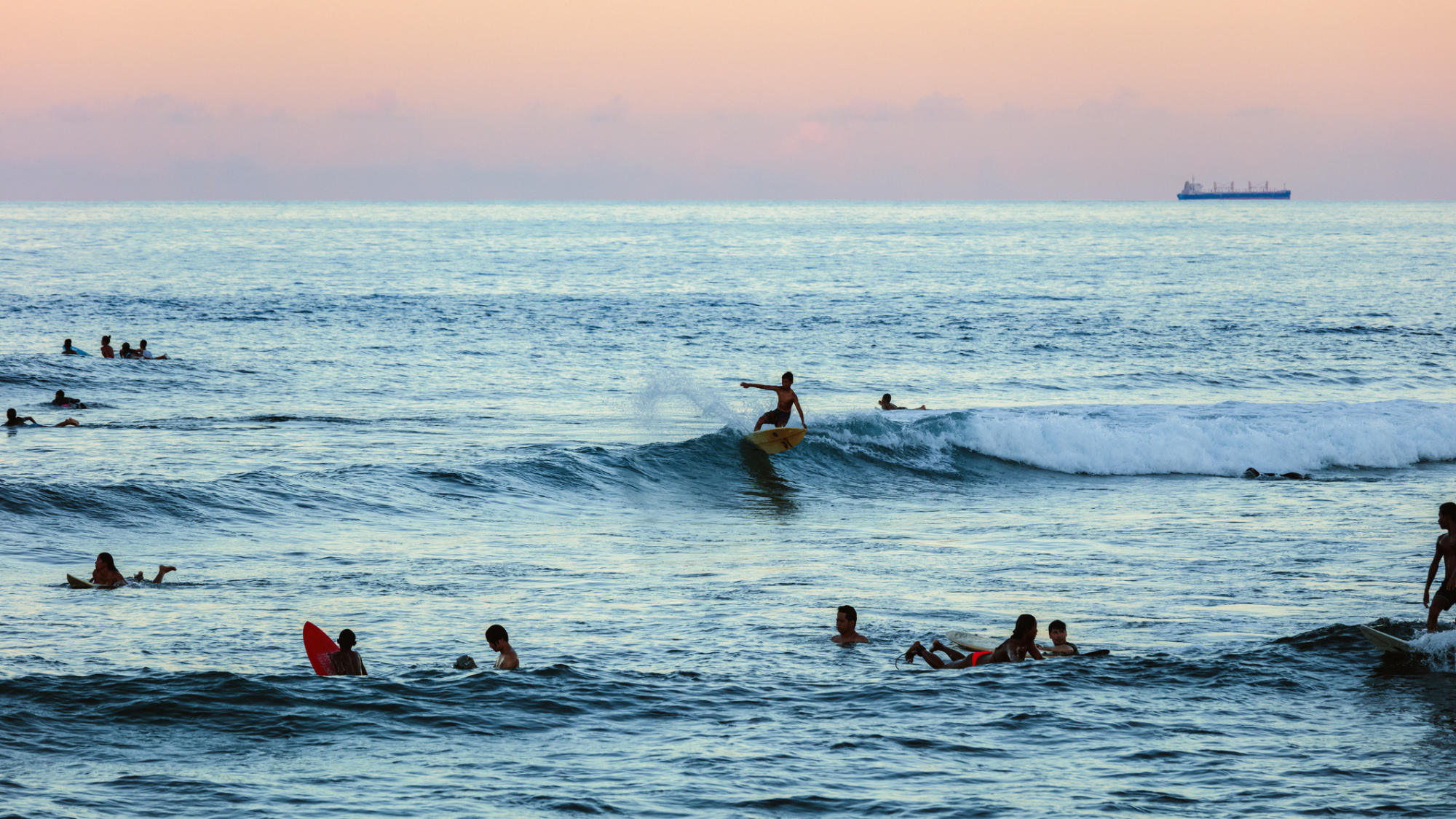
There are plans for an international airport in Siargao, and for "blocky" hotels. But for now, this island in the southeastern Philippines is a low-key surfers' paradise, said Chris Schalkx in Condé Nast Traveller, with beautiful beaches, fabulous reef breaks and a main town of "scrappy board shops and hammock-strung hostels".
The smartest place to stay is Nay Palad Hideaway, which offers "pure toes-in-the-sand relaxation", with its "frangipani-scented gardens", menu-less restaurant and hidden yoga pavilions. They can arrange for you to go on a boat trip to an idyllic swimming or diving spot on a neighbouring island – or you might take a tour of Siargao's interior with Lokal Lab, a Siargao-based NGO whose projects include a "bamboo-clad" Tropical Academy, and a "showcase farm". Visit naypaladhideaway.com and lokallab.org.
Winter walking in Greece
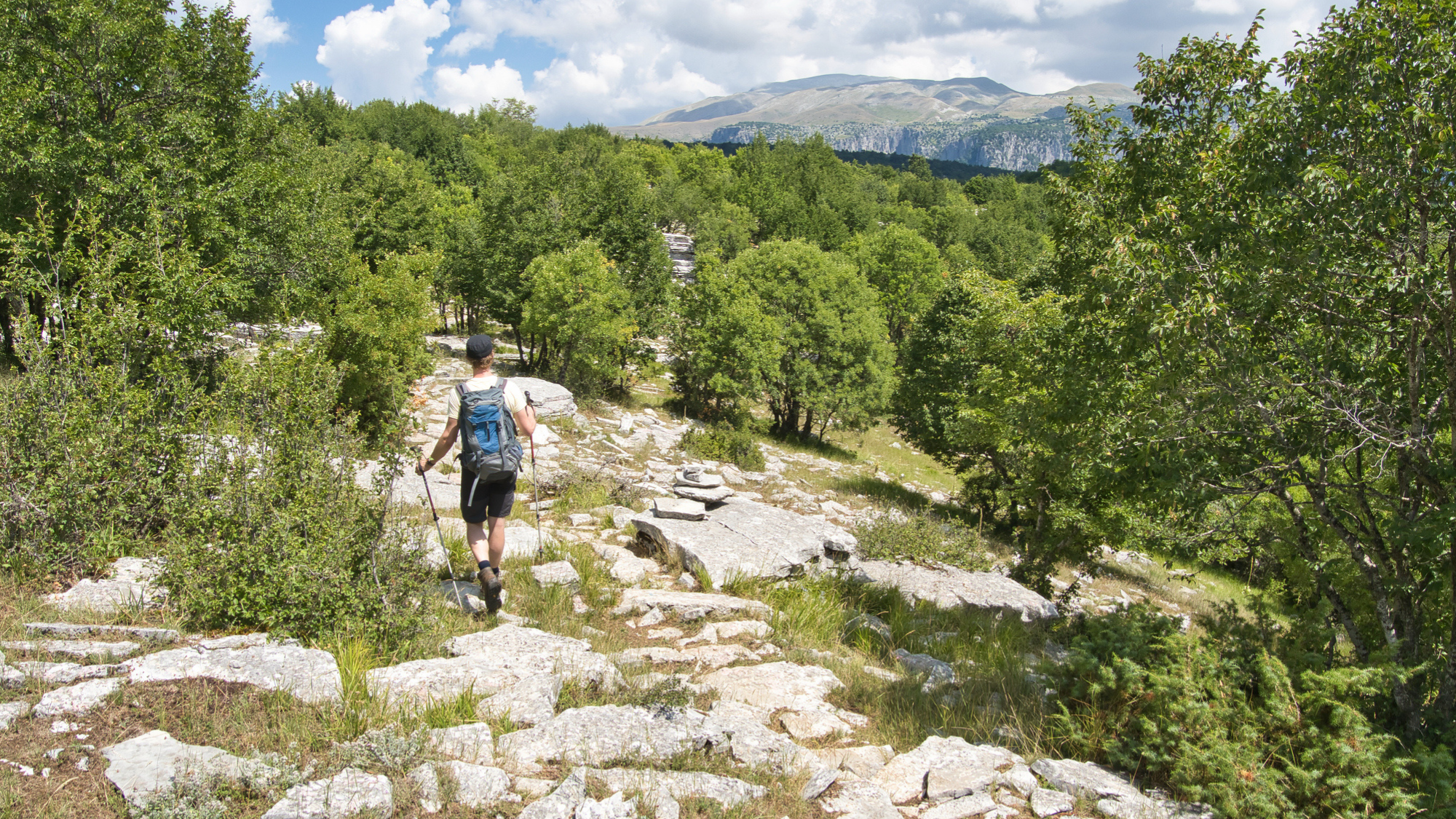
With its high mountains and beautiful old villages, the Zagori region of northwest Greece is wonderful hiking territory. Most visitors come during summer, but it is particularly “magical” in the winter, said Susan Smillie in The Guardian, when icicles overhang its deep spring pools and the roofs of its Ottoman merchants’ mansions are heavy with snow.
Everything feels “pristine and empty” – as “otherworldly” as Narnia – and yet there are still all kinds of guided activities on offer, including canyoning, skiing, rafting and horse trekking. Among the best places to stay are En Chora Vezitsa (a family-run guesthouse that hosts cookery and yoga classes, and overlooks the spectacular Vikos Gorge), and Mikro Papigo 1700, a “perfectly preserved” 18th century house in Papigo – “the most timeless of all Zagori villages” – with a hammam, sauna, Jacuzzi and spa. Alpine Zone offers year-round guided activities.
Narbonne's many charms
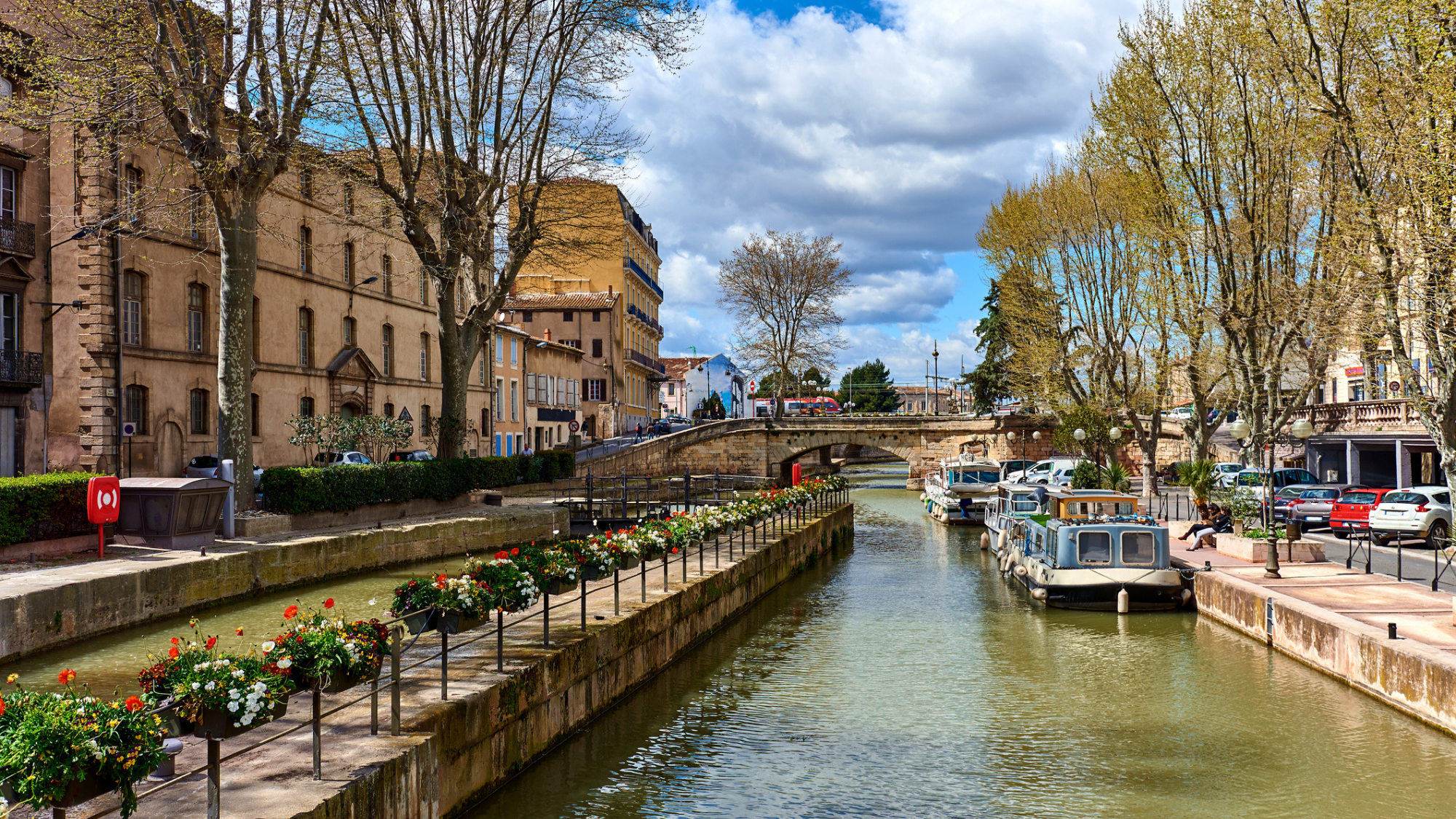
Under Roman rule, Narbonne was the capital of a vast southern province of France. It's not nearly so important today, said Anthony Peregrine in The Sunday Telegraph – but it remains a splendid little city. Its old food market is the "liveliest" for miles around. And though only half of it was built, its gothic cathedral was conceived on a superlatively grand scale.
The city also has a "gripping" museum of Roman history, and a museum dedicated to the chansonnier Charles Trenet, in the "neat petit-bourgeois" house where he was born. And if Narbonne's own attractions aren't enough for you, bear in mind that it lies within easy reach of many others, including Mediterranean beaches (as little as ten miles away), the fortified city of Carcassonne, the Canal du Midi, and an endless array of good wineries.
Tbilisi: Europe's 'next Berlin'
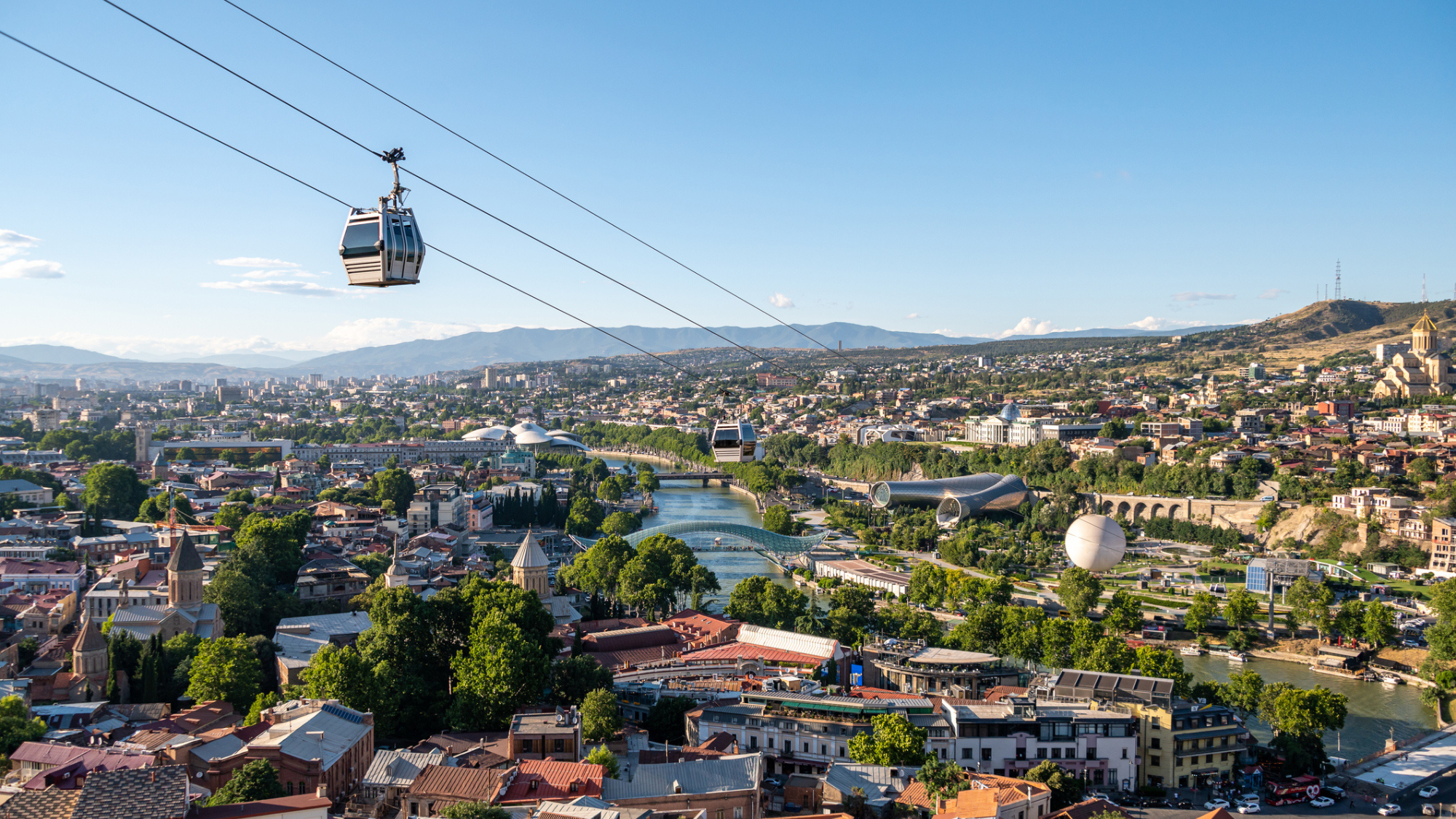
Explore Tbilisi's Soviet relics and medieval forts
With its co-working spaces and natural wine bars, Tbilisi has "garnered a reputation as the 'next Berlin' among clued-in city trippers" in recent years, said Chris Schalkx in The Sunday Times. But the capital of Georgia is "more than a hipster honeypot: this former Silk Road-era trading hub has passed hands between Mongol khans, Persian shahs and Russian rulers", and they've all left their mark.
There is a lot to explore: medieval forts, Soviet relics, "crumbling roadside inns"; and when you've had your "urban fix", the country's "snow-capped mountain ranges and frozen-in-time villages are just a short drive or train ride away". As for places to stay, "few places better sum up modern-day Tbilisi" than Stamba, an unpretentious hotel in a former printing factory, where the rooms "meld brutalist bare concrete with glam-rock licks of brass and leather". Doubles from £135 (USD$172); stambahotel.com.
Riding the cobbles of Flanders
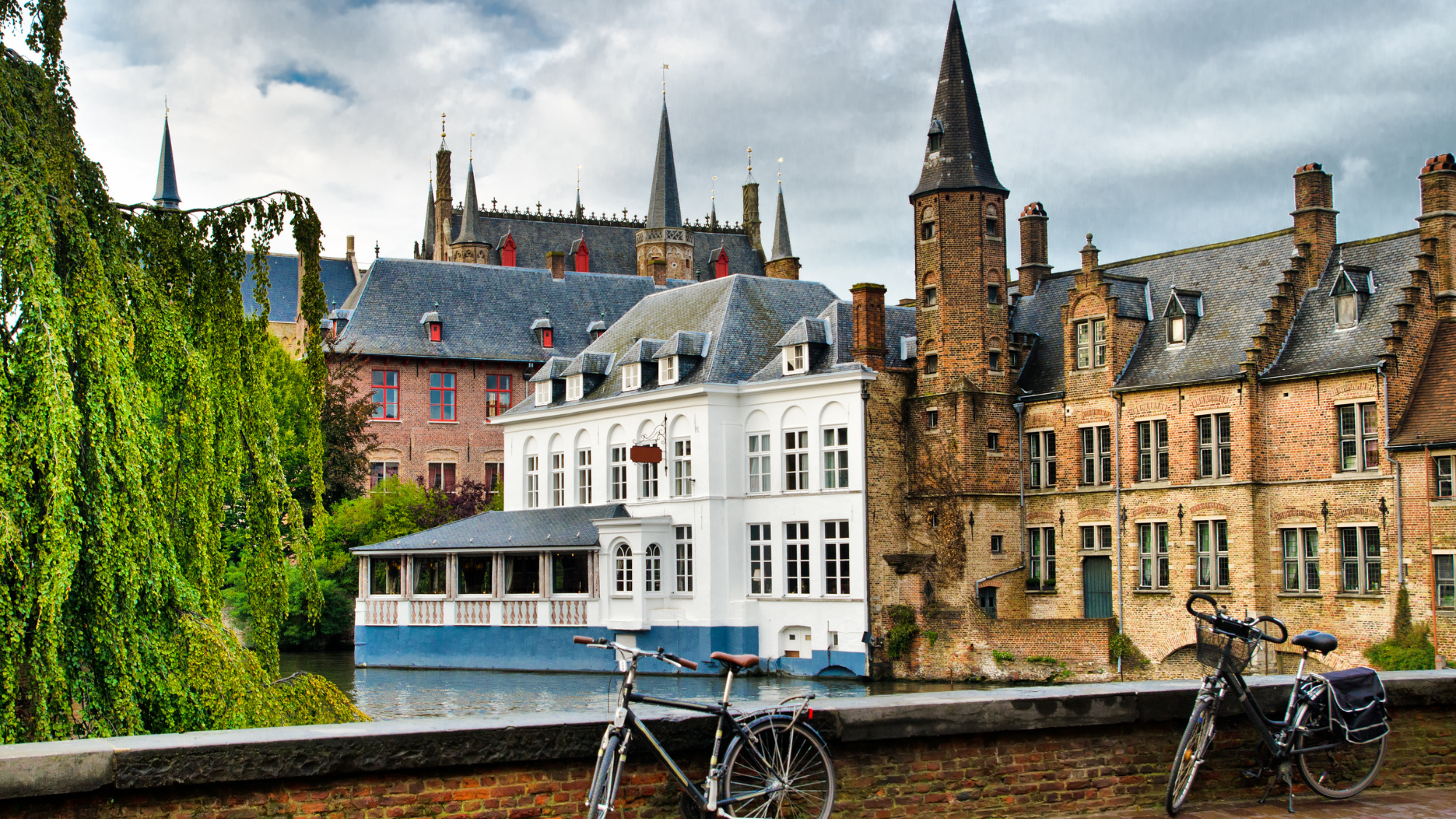
Explore the 'seemingly never-ending' cycle routes through Flanders
"The Belgians love their cycling, but the Flemish worship it," said Steve Chamberlain in The Guardian. "Bike sculptures lurk in fields"; and the countryside is criss-crossed with "carefully delineated" cycle routes and "seemingly never-ending" bike lanes. So Flanders is a great place for a cycling holiday – especially if you're not put off by the notion of rattling over the region's "notorious" cobbles, or pavés (though there are routes that don't feature them).
The town of Brakel makes for a good base. The Flandrien Hotel is a "cyclists' haven", and there are three Ronde van Vlaanderen circuits in the surrounding region. Alternatively, there is the 45km "Peace" route, which starts in Ypres and goes past battlefields and war cemeteries.
A spiritual retreat in Moray
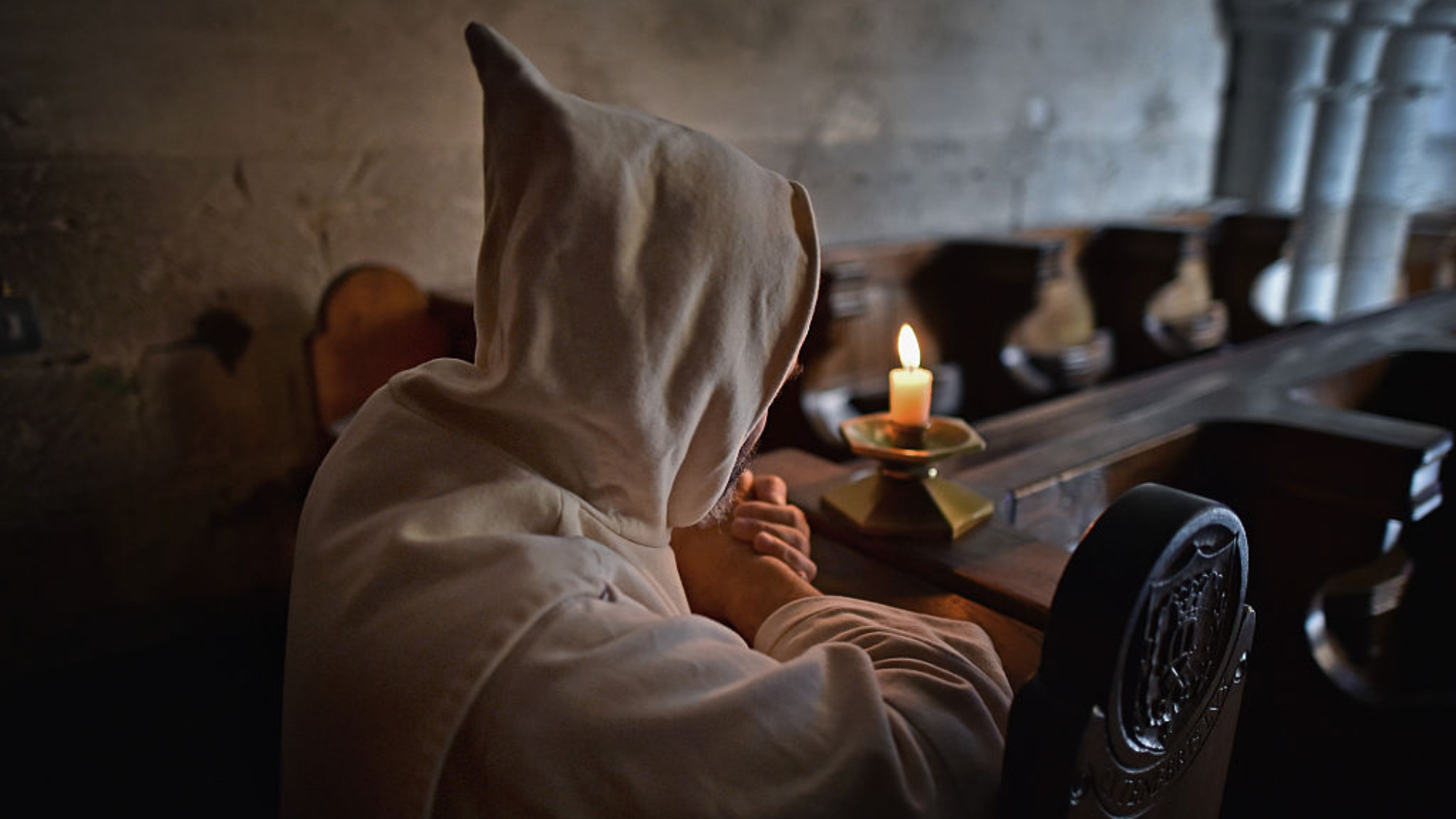
Retreat to to the Roman Catholic monastery, Pluscarden Abbey
"In the frantic modern world, the notion of a 'retreat' seems to have a currency as never before," said Christopher Akers in the FT. There are fasting retreats in Italian palazzos, Himalayan yoga camps and "gut-health resets in Swiss spas"; but at Pluscarden Abbey, a medieval Roman Catholic monastery, in the countryside 35 miles east of Inverness, it's possible to go on a retreat that is "far older than most" – and free, though donations are gratefully received.
Male visitors share simple meals with the monks, which are eaten in silence; the women's accommodation is self-catering. Retreats are not directed and, apart from helping with chores, guests spend their time as they like – immersed in the beauty of Gregorian chanting, reading, walking, praying, or helping the monks in manual labour. Visitors come from all walks of life, and camaraderie is quickly established. As the days pass, "I find myself unwinding – more than I ever have on a tropical beach."
A palace in the snow in Sweden
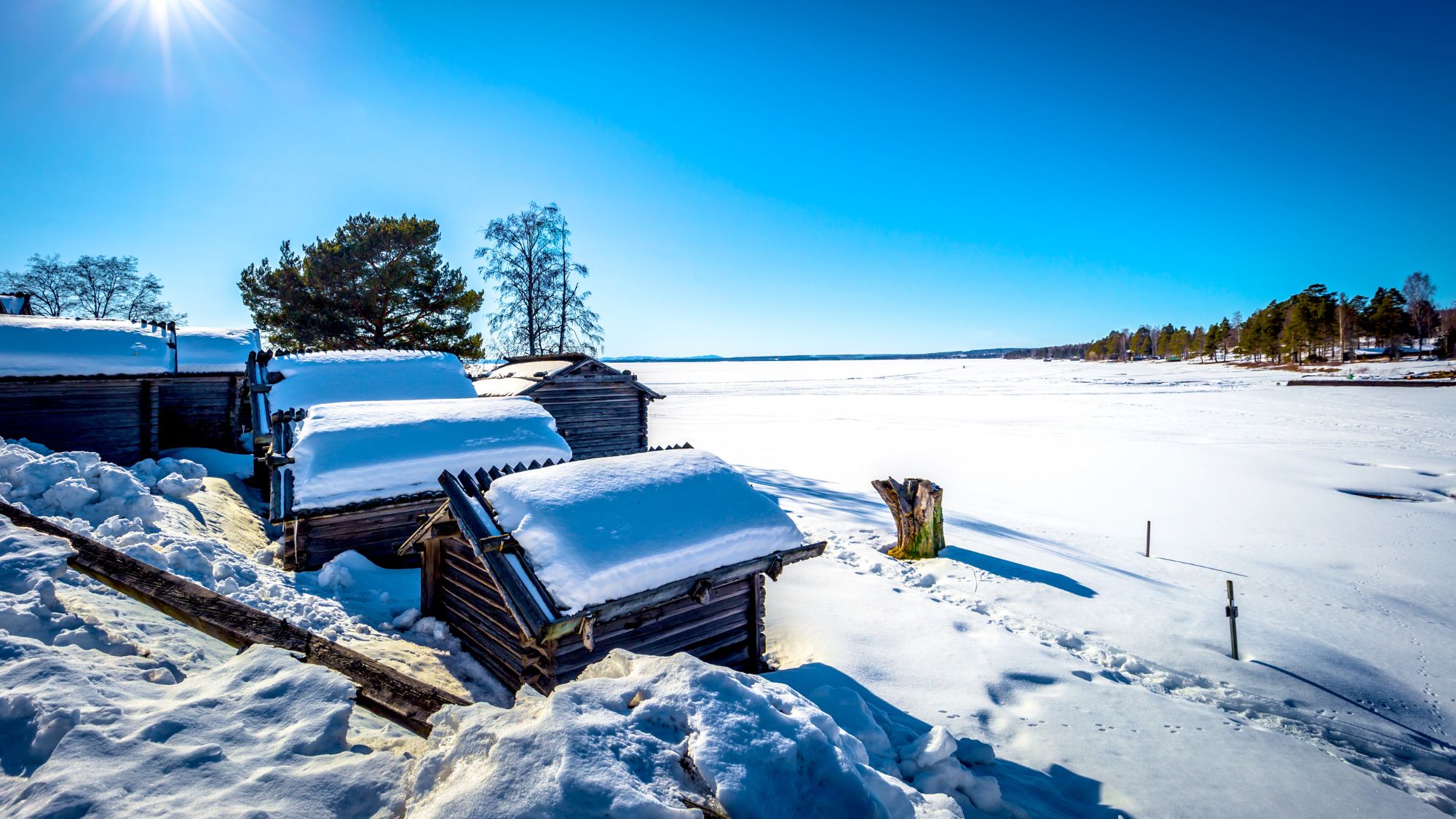
Explore the wilds of Dalarna province in the winter
Digging a snow cave and sleeping in it was a "boyhood dream" of mine, said Kevin Rushby in The Guardian, but not one it has been easy to realise in the UK. In the icy forests of central Sweden, however, it's a realistic goal – and Do The North can help you achieve it. This adventure company runs week-long trips that feel "like going away with a gang of friends" – kayaking and camping on Sweden's islands in the summer, and exploring the wilds of Dalarna province in the winter.
The first stop in Dalarna is an "idyllic" cabin in the woods, with log burners, lanterns, antique furniture and a sauna. Activities include cross-country skiing and ice-skating, and an "extraordinary" range of kit (including beautiful old sleds) is then distributed for an expedition up to the alpine plateau of the Fulufjället National Park. There, you learn how to put up a tent in a blizzard – and, if conditions are right, those who want to can dig a snow hole. On my trip, we created a "palace", with reindeer skins and niches for candles. Wonderfully cosy within it, I enjoyed "one of the best night's sleep I've ever had".
The trip costs from £1,437pp ($1,821); dothenorth.com
Big Sky: glamour in Montana
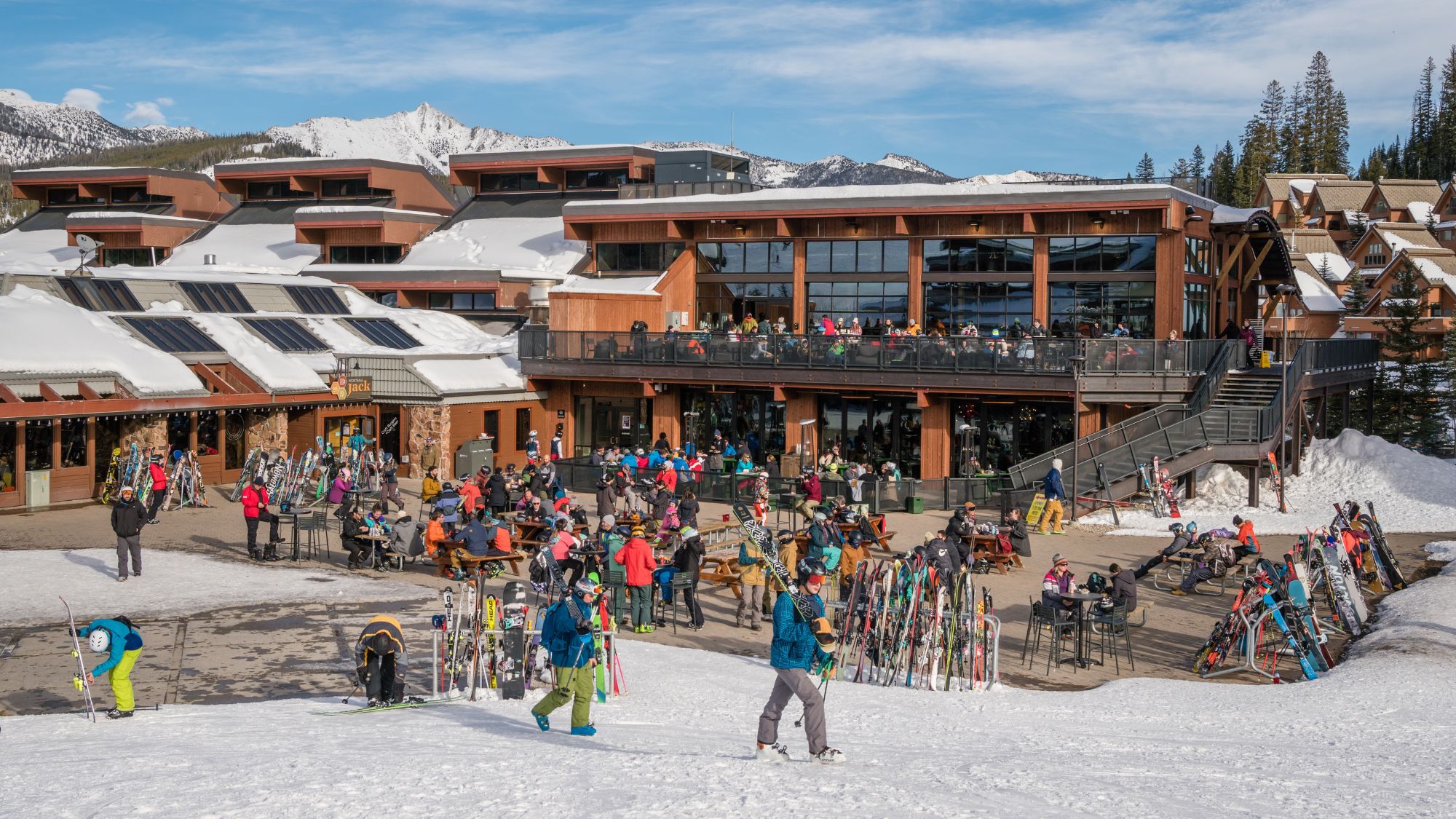
Big Sky is the third-largest ski resort in North America
For decades, Big Sky was off the radar of most winter sports enthusiasts: "being somewhat difficult to get to, and offering great skiing but not much else". But this resort in Montana is "in the midst of a transformation", said Gloria Liu in Travel + Leisure, with "increasingly luxe" accommodation, and ever-more "hip" bars and restaurants. And there are now more direct flights to nearby Bozeman from cities including New York.
It still can't rival the "off-mountain glitz" of Aspen or Jackson, but its "down-to-earth vibe" has an appeal of its own – as does the sheer quantity and quality of skiing to be had here. Big Sky is the third-largest ski resort in North America, after Whistler Blackcomb and Park City Resort. It has more thrilling advanced terrain than any other US resort, but also has a lot to offer beginner and intermediate skiers. Among the resort's swankiest hotels are the Montage and the Yellowstone Club, and a One&Only resort is due to open in 2025. Expert skiers might also enjoy a few nights at the Summit Hotel, which offers early morning lift access to some of the most challenging slopes.
Raiatea: a delightful island in French Polynesia
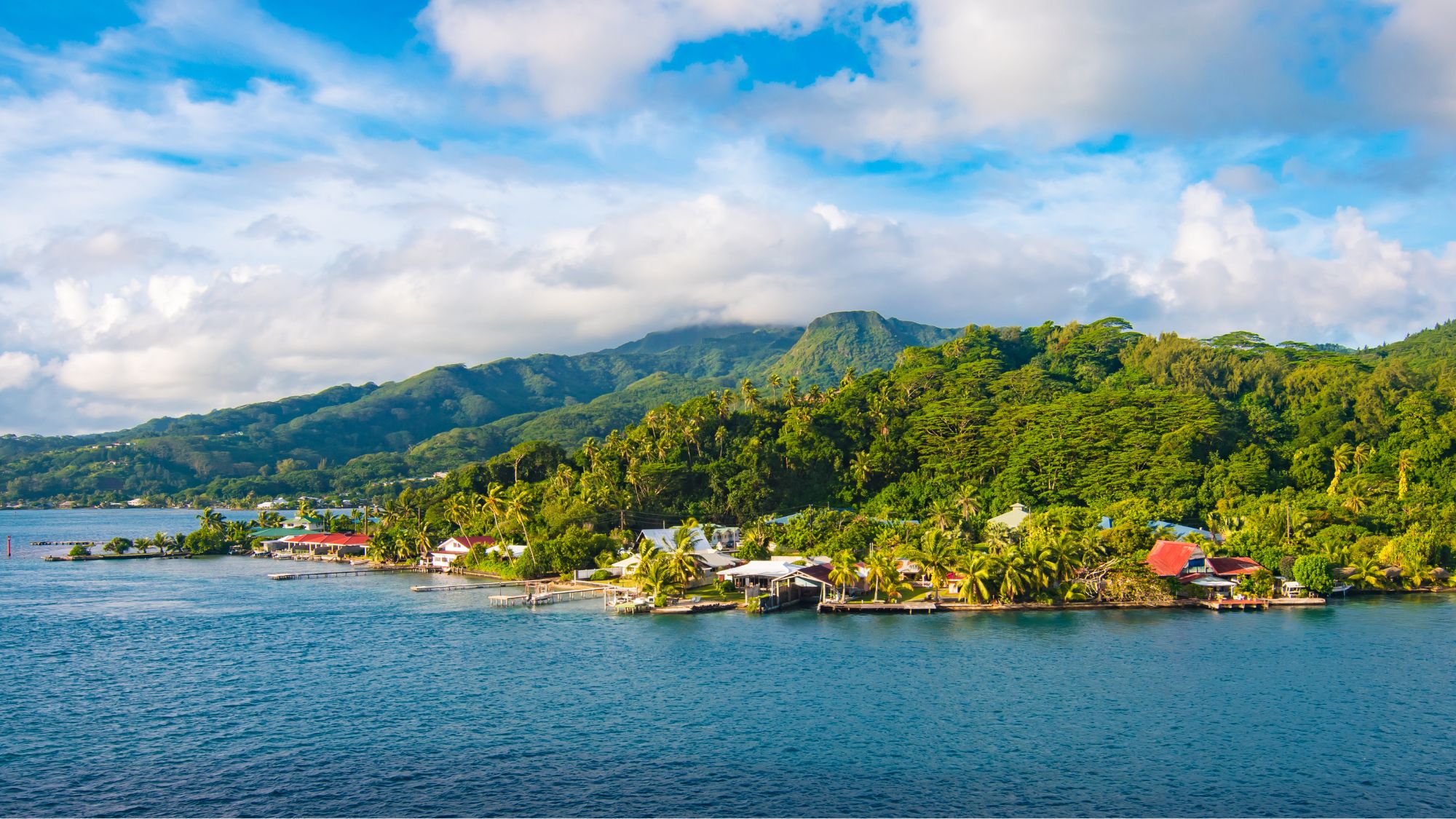
Raiatea belongs to the Society Islands
Crowned with verdant volcanic peaks and encircled by a lagoon so translucent that to float in it feels like "levitation", the island of Raiatea is a sliver of heaven in the heart of the South Pacific, said Oliver Smith in the FT. Often said to be "Hawaiki", the central homeland of Polynesian mythology, it belongs to the Society Islands, one of five archipelagos that make up French Polynesia. But while some nearby islands, such as Tahiti and Bora Bora, are quite urbanised and touristy, Raiatea is the sort of place where "people still wave to passers-by". There are a dozen villages around its coast, with "peach-coloured" Protestant churches, and bungalows with corrugated iron roofs that "chime like glockenspiels during tropical downpours".
The island offers wonderful walking, snorkelling, kayaking and sailing, and also has one of Polynesia's greatest archaeological sites, the temple of Taputapuatea, from which the priest Tupaia joined Captain Cook on his first Pacific voyage, in 1769.
See tahititourisme.uk, raiatea-lodge-hotel.com, and tahitiyachtcharter.com
The Algarve's mellow charm in winter
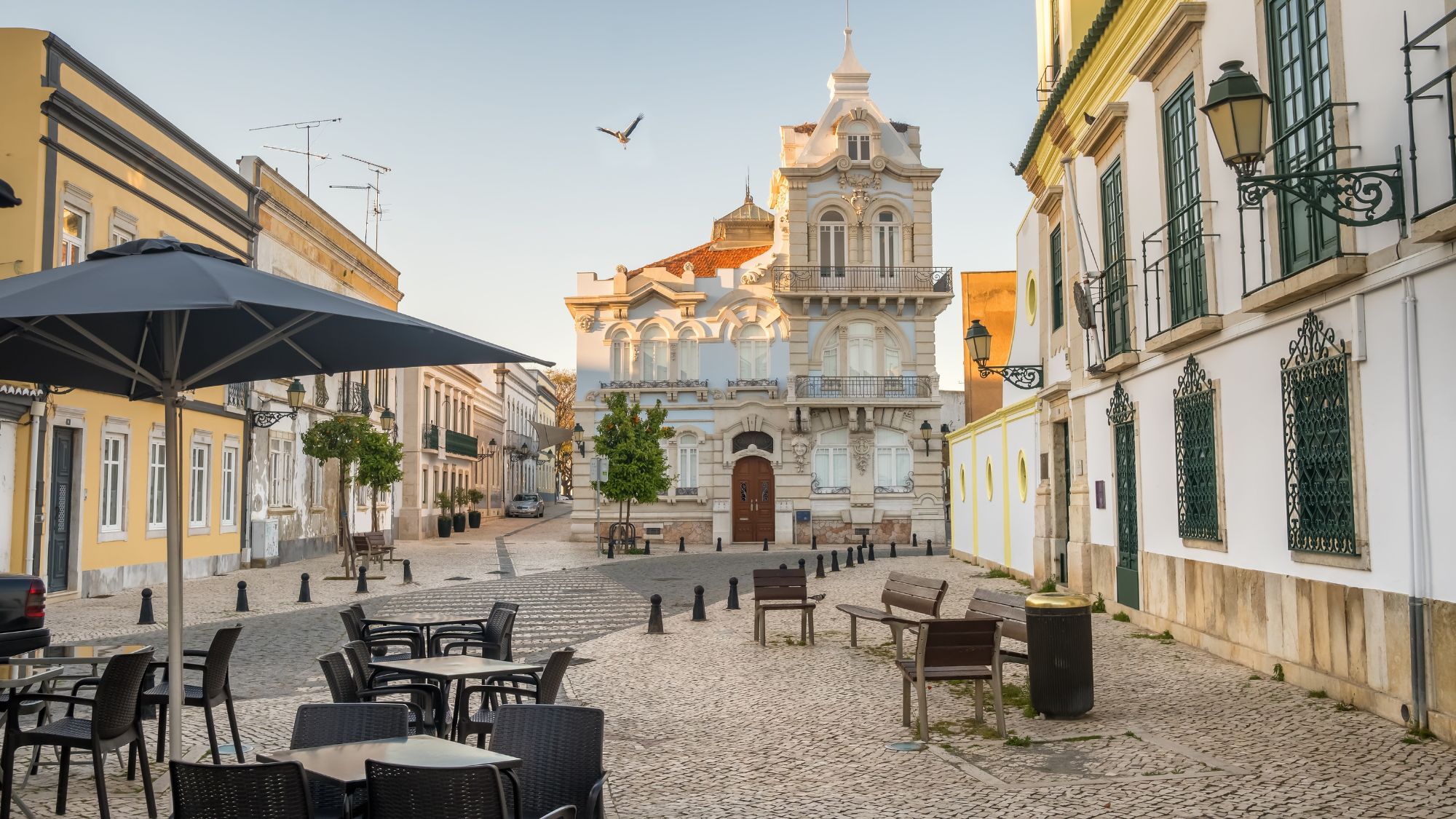
Faro is a 'funky' city with a cobblestoned historic centre
I used to be dismissive of the Algarve, said Audrey Gillan in The Times, imagining it as "a place for golfers and fly-and-floppers who like a drink". But then I visited this region, in the far south of Portugal, saw what lay beyond the bars and golf courses – including glorious beaches, elegant old towns, and beautiful hiking trails – and liked it so much that I moved here. My favourite time of year is the low season, when it's less busy, but the weather is often mild and sunny, and the sea, though nippy, "is still dippable".
The regional capital, Faro, is a "funky" city with a pretty, cobblestoned historic centre and lots of fine modernist architecture. From there, you might take the train east along the coast, stopping at the enchanting fishing town of Olhão (which is where I live) and "lovely" Tavira. Among the "chicest" of the region's five-star hotels is the Vila Vita Parc, which has a restaurant with two well-deserved Michelin stars, and also manages some "luxurious" holiday lets with butler service. But there's also plenty of excellent accommodation at more affordable rates (such as Casa Âmago and Morgado do Quintão), and many other wonderful restaurants (I particularly recommend Austa, in Almancil, and Alameda, in Faro).
Beautiful Grenada's dramatic past
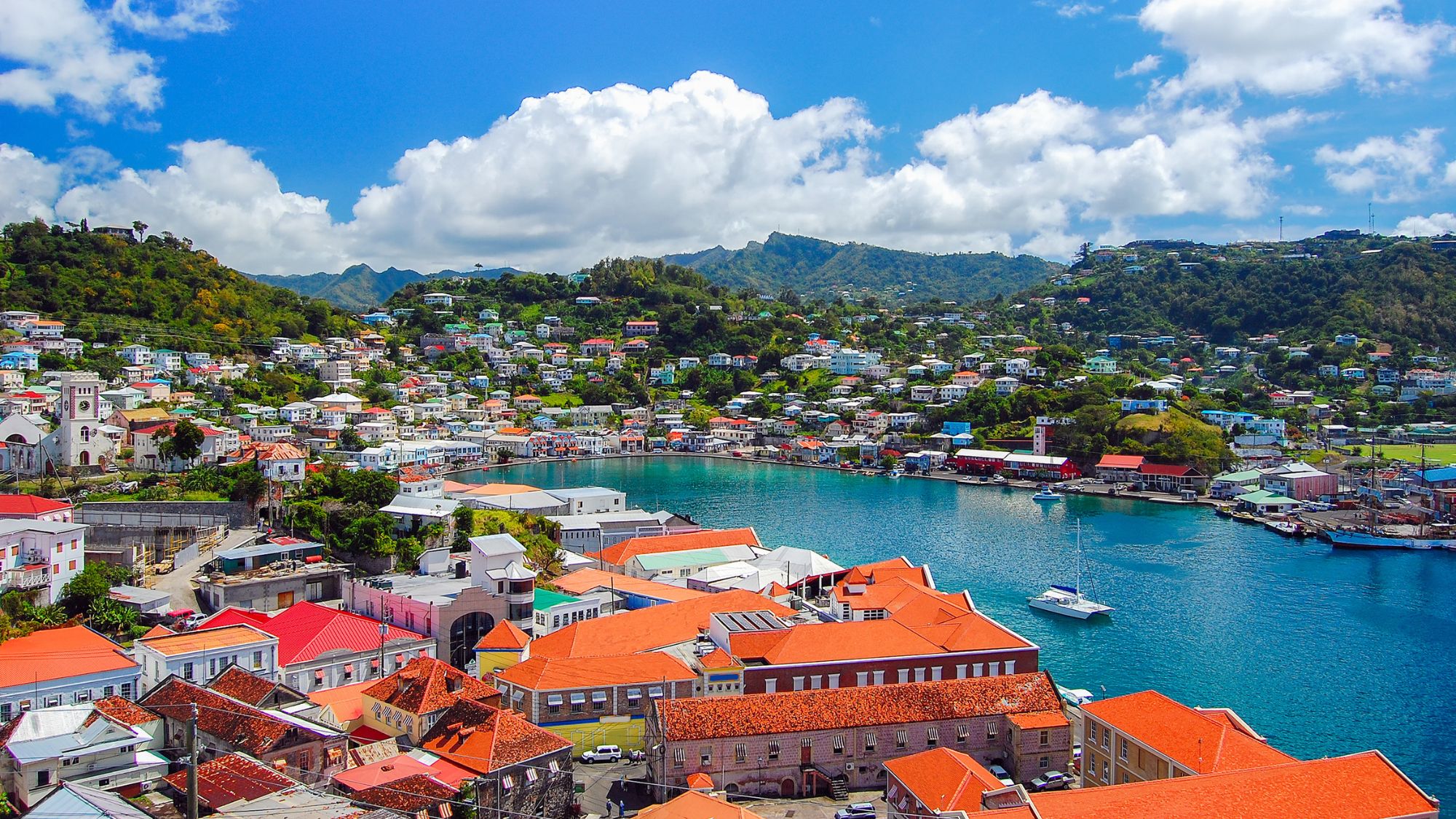
Saint George's is Grenada's pretty capital
Grenada is one of the most beautiful and unspoilt islands in the Lesser Antilles, said Mark Stratton in The Daily Telegraph – and that is partly because of the short-lived socialist revolution of 1983, which scared off the big hotel chains just as prime coastlines in other Caribbean nations were disappearing under concrete. Today, roughly 80% of the island's tourist accommodation sits close to the pretty capital, Saint George's, beyond which lie towering mountains, undeveloped beaches, coastal villages and "bird-rich" rainforest – all "a delight to explore".
There are spice farms too, as well as small-scale, "bean-to-bar" chocolate makers, most of which are open to visitors. And here and there you find reminders of the tragic events of 40 years ago, when the violent overthrow by hardliners of the country's moderate socialist leader, Maurice Bishop, prompted the US to invade and occupy Grenada for two years. Eeriest of all is the disused Pearls Airport, where two Russian-made planes still stand, decaying, as though US marines had only withdrawn a few weeks ago.
Art and culture in Turin
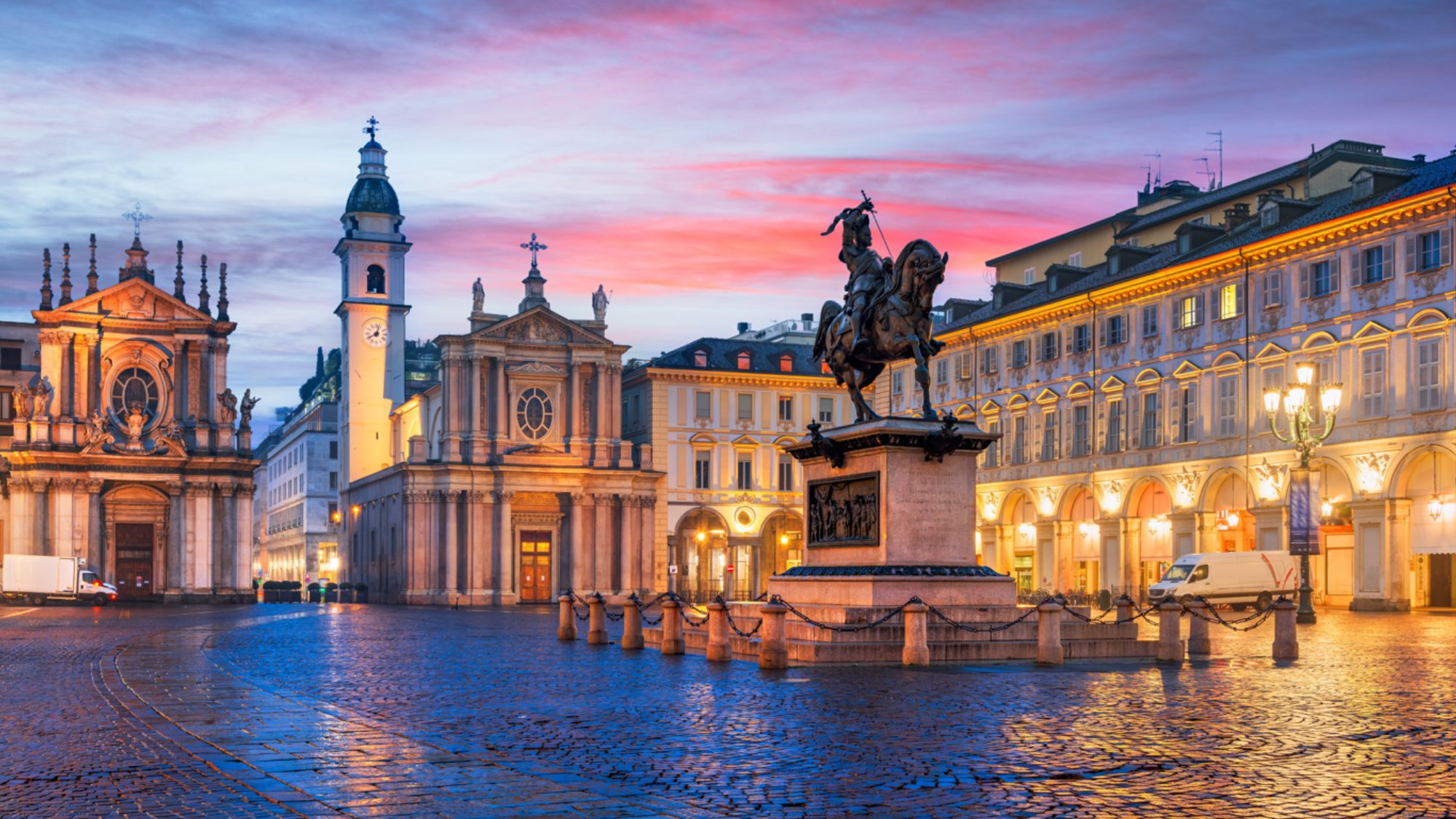
Turin is a handsome city with baroque avenues and squares
Turin doesn't enjoy the same fame as "fashion-fuelled" Milan, but I've always preferred it to its relatively "brash" neighbour, said Nick Trend in The Daily Telegraph. Long the seat of the Duchy of Savoy and, from 1861 to 1865, the capital of newly unified Italy, it is a handsome city, with baroque avenues and squares, and its fine museums make it one of Europe's most indispensable destinations for art enthusiasts.
Among the best are the Sabauda Gallery (Old Masters); the Museo Egizio (which "outguns" the British Museum with its ancient Egyptian treasures collection); and the Castello di Rivoli, Italy's "leading museum of contemporary art". Most distinctive, however, is the Lingotto building, the old Fiat factory on the roof of which Michael Caine's gang raced Minis in "The Italian Job". Built in the 1920s, it is one of the world's most beautiful concrete structures, and now houses an excellent art museum, the Pinacoteca Agnelli.
A new tour of Mont Blanc
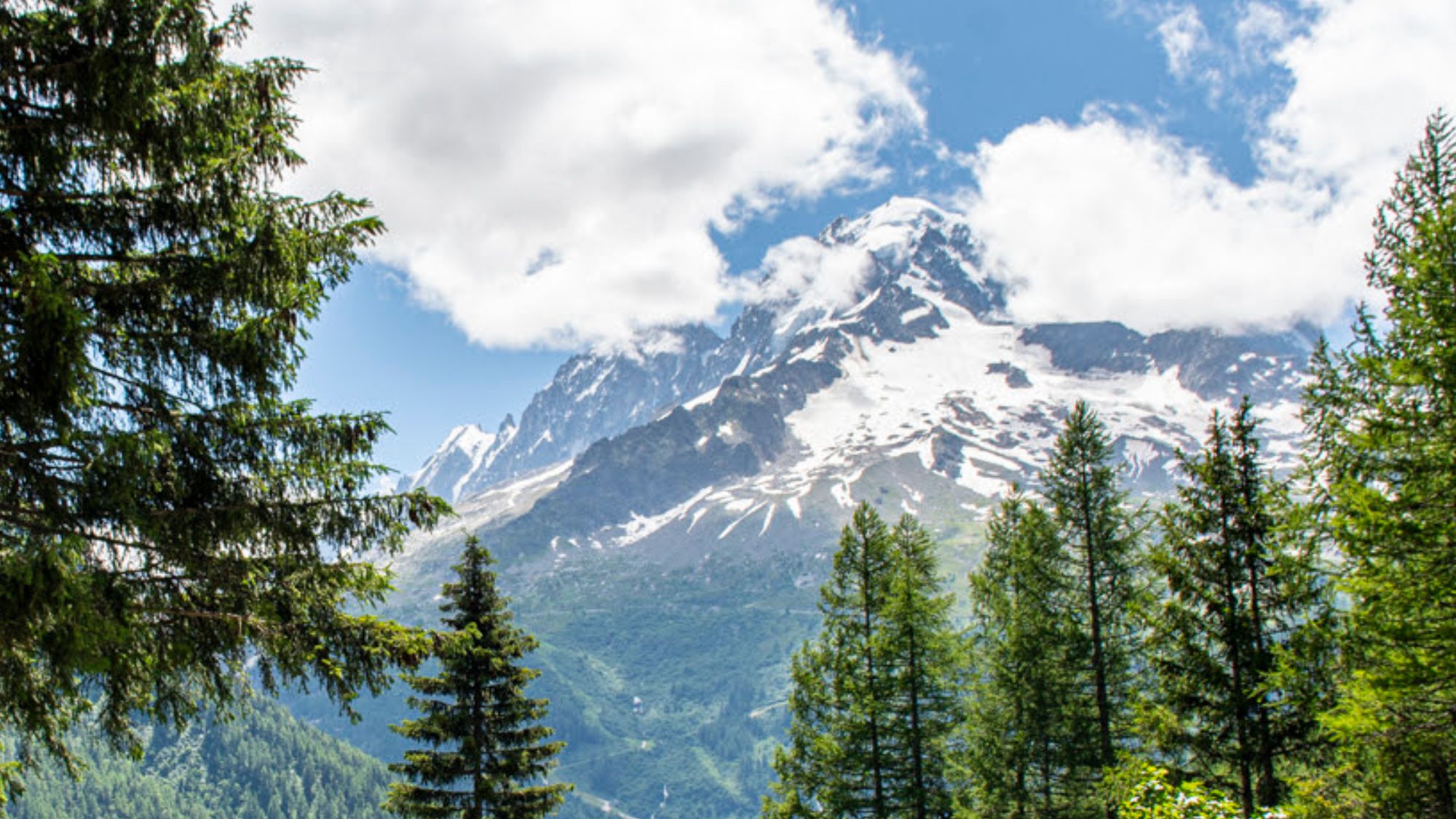
Enjoy panoramas of some of Europe's finest mountain scenery
Mont Blanc stands proud as Western Europe's highest peak. Its snowy slopes and rocky ridges have long attracted adventurers seeking an ultimate high. Yet for those after a more immersive adventure, a high without ascending the heights, Inntravel is introducing a new Tour of Mont Blanc holiday for 2024. The 11-night trip offers a variation on the classic Tour de Mont Blanc, a Grand Randonnée route, taking in France, Italy and Switzerland, with a non-stop panorama of some of Europe's finest mountain scenery. Inntravel's holiday allows for a rest day in Courmayeur, as well as shortening certain sections through use of shuttle buses or riding by cable car, itself an iconic Alpine experience.
Available from 26 June to 15 September 2024. Price from £2,195 ($2,727) per person based on two sharing, including 11 nights' b&b accommodation, four dinners, route notes and maps. Flights extra. Guests can also travel from London by rail, from £2,735 ($3,398) per person: UK to Paris (Eurostar), Paris to Geneva (TGV); inntravel.co.uk
Highlights of Japan family holiday
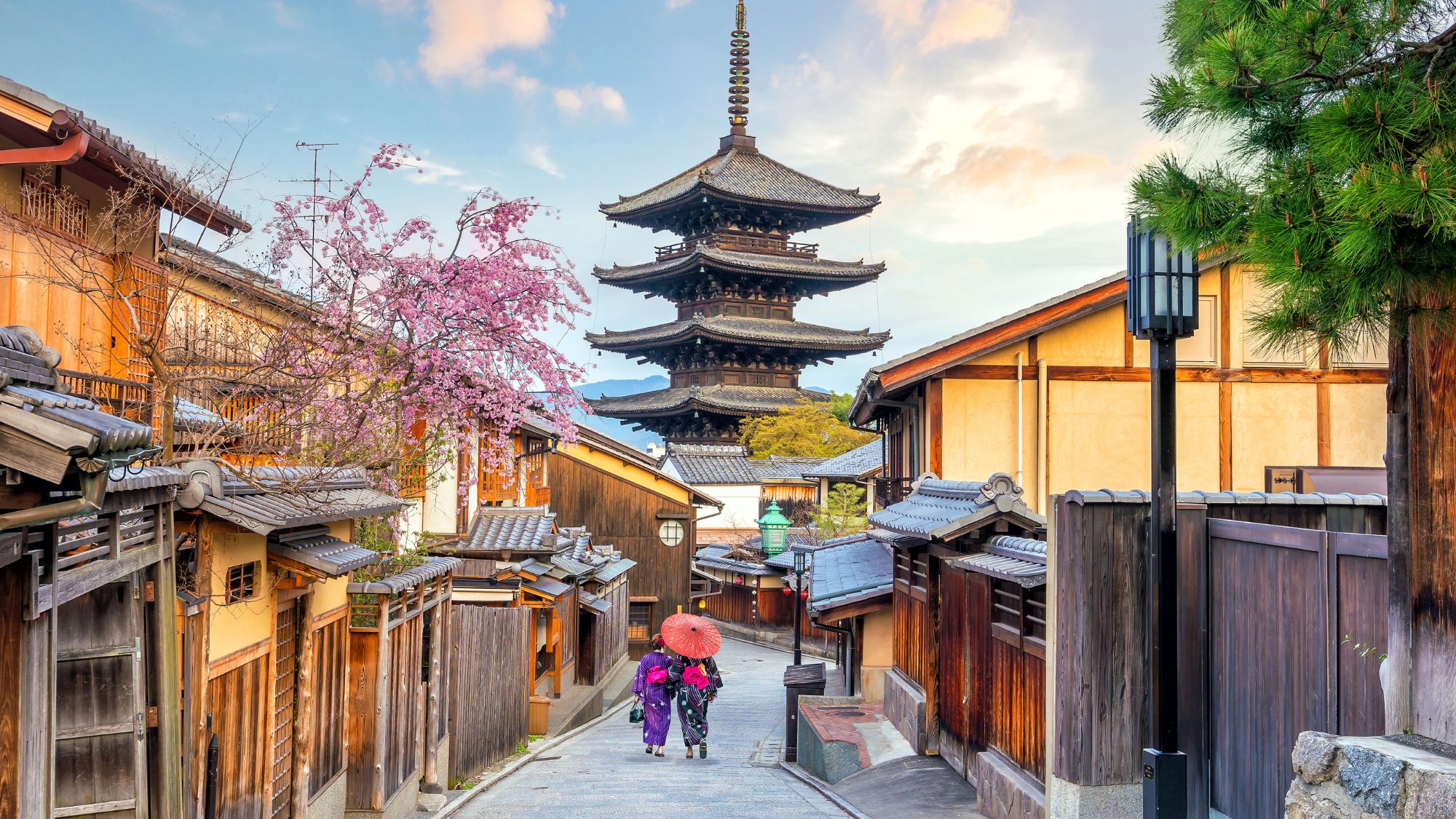
Learn about Japan's spiritual traditions in Kyoto
Intrepid Travel will have more than 100 new itineraries on its 2024 calendar. One of the trips is a "Japan Highlights" holiday, where families can learn the spiritual traditions of the country, from geishas and temples in Kyoto, to modern youth culture of quirky fashion, street art, and hole-in-the-wall bars and restaurants in Harajuku. They'll also stay at a rural tea farm and see how tea is harvested by local farmers.
The eight-day trip starts from Tokyo and finishes in Osaka. Seven breakfasts, two lunches, two dinners, transport (Metro, local train, bullet train) and accommodation (hotel for six nights and a farm stay for one night) are included. From £2,709 ($3,435) per person; intrepidtravel.com
Wilderness walking: highlights of the Highlands
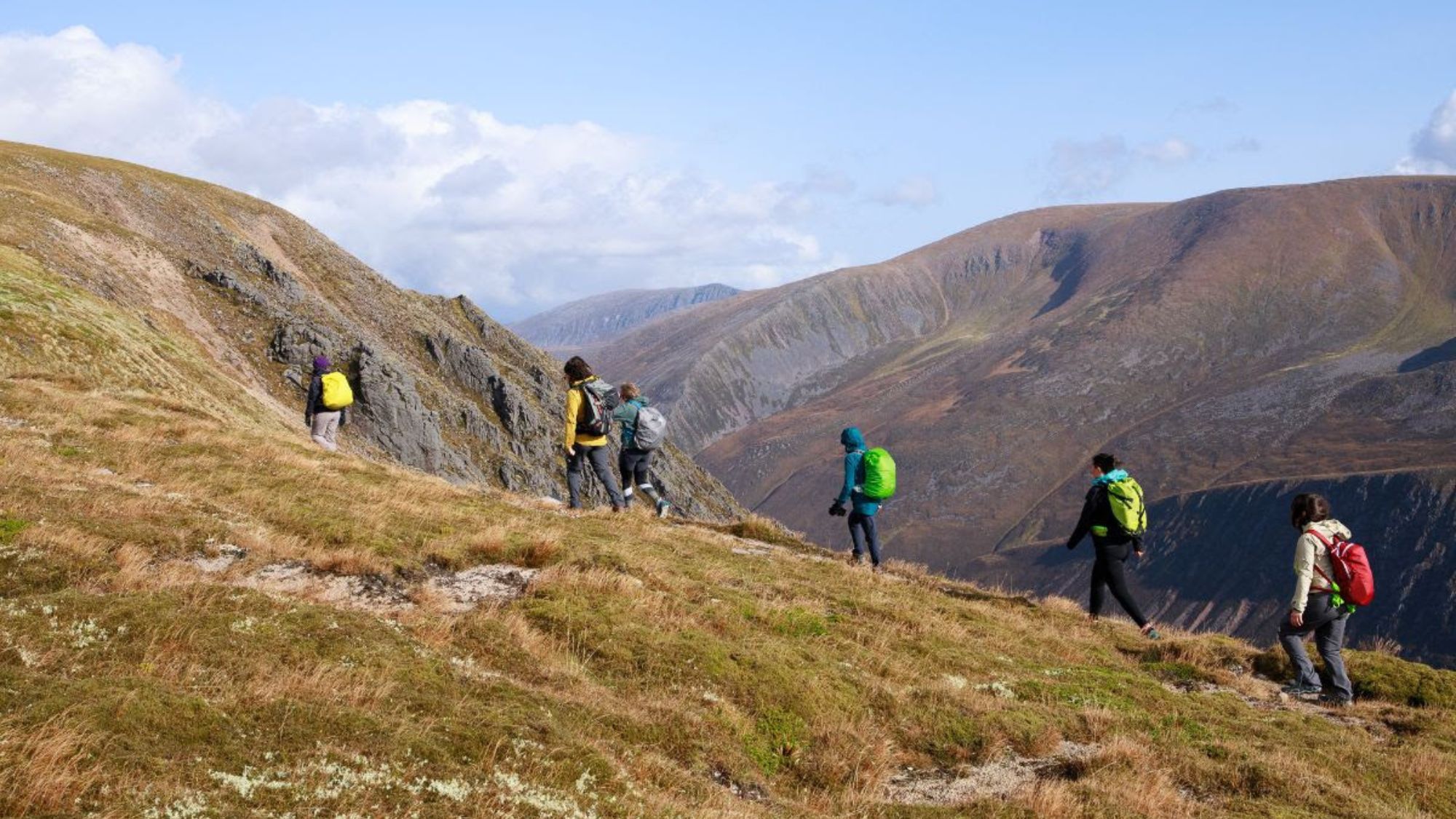
Explore the Highlands' wild beauty
This new nine-night, fully guided trip by Wilderness Scotland combines the very best of the Highlands' wild beauty with superb, luxury hotels, offering the finest seasonal food, all while enjoying some stunning hiking. Highlights include a boat trip to the remote shores of Loch Coruisk on Skye; hiking in Glencoe in the company of red deer and golden eagles; a visit to the Culloden battlefield; hiking in the Cairngorms National Park; and guided tours of Scone Palace and the Dundreggan Rewilding Centre. The group will stay in the Highlands' most sumptuous hotels, including the Fife Arms and Isle of Eriska Hotel.
Price from £4,895 ($6,205) per person sharing, including nine nights' accommodation, all meals, guiding and transfers. Depart 6 May, 3 June or 26 August 2024; wildernessscotland.com
Ski and surf adventure across Chile
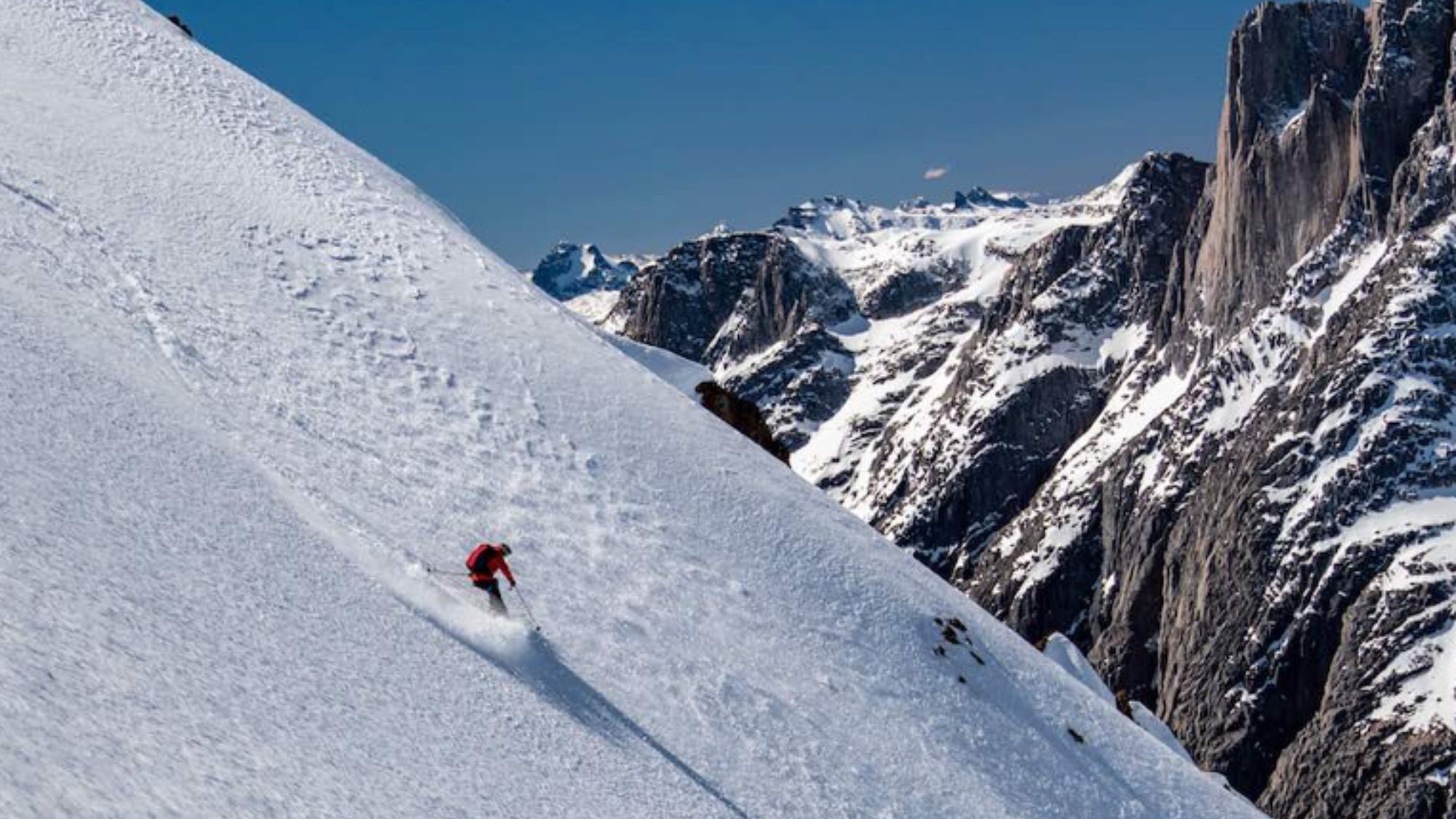
Go on a heart-pounding skiing trip in the Andes
Embark on an extraordinary Chilean adventure with Pelorus that blends heart-pounding skiing in the Andes with breathtaking surfing at Punta de Lobos. Starting at El Morado Lodge, in the Maipo River valley, a week of helicopter-assisted skiing unfolds, guided by experts with decades of experience traversing the Central Andes and Patagonia. Transitioning to a private ski lodge in Curico, your journey takes you closer to the allure of Pichilemu’s coastal treasures and the iconic waves of Punta de Lobos. Days are flexible, allowing you to choose between skiing and surfing as conditions and whims dictate.
From July to December 2024, eight nights from £30,000 ($37,253) per person; pelorusx.com
Loch Ness, The Jacobite and Skye rail tour
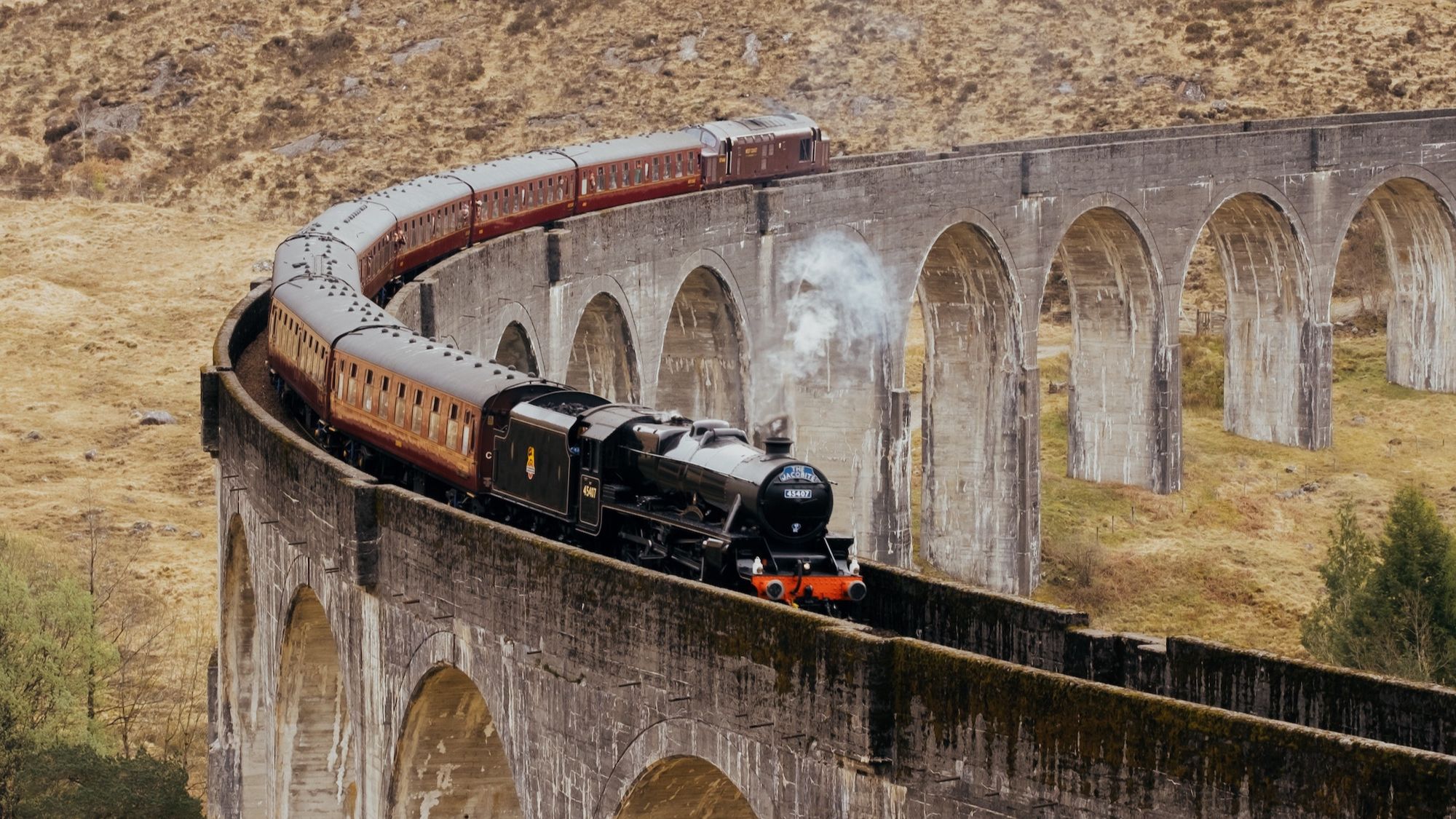
Guests will travel on the stunning West Highland Line
The Adventure People has launched a new collection of train-based tours in Scotland and Ireland, including an itinerary to Loch Ness, The Jacobite and Skye. Running from April to October 2024, the trip departs from Glasgow and ends in Edinburgh. Guests will travel on the stunning West Highland Line, including a journey on the world famous Jacobite steam train. Other highlights include exploring the rugged beauty of the Isle of Skye, enjoying a cruise on Loch Ness, catching a glimpse of Britain's highest mountain, Ben Nevis, and discovering the lively capital of the Highlands, Inverness.
Price includes accommodation in small hotels or b&bs, daily breakfast, two lunches and three dinners. Seven days from £2,273 ($2,823) per person; theadventurepeople.com
Nepal: hike the Forbidden Kingdom
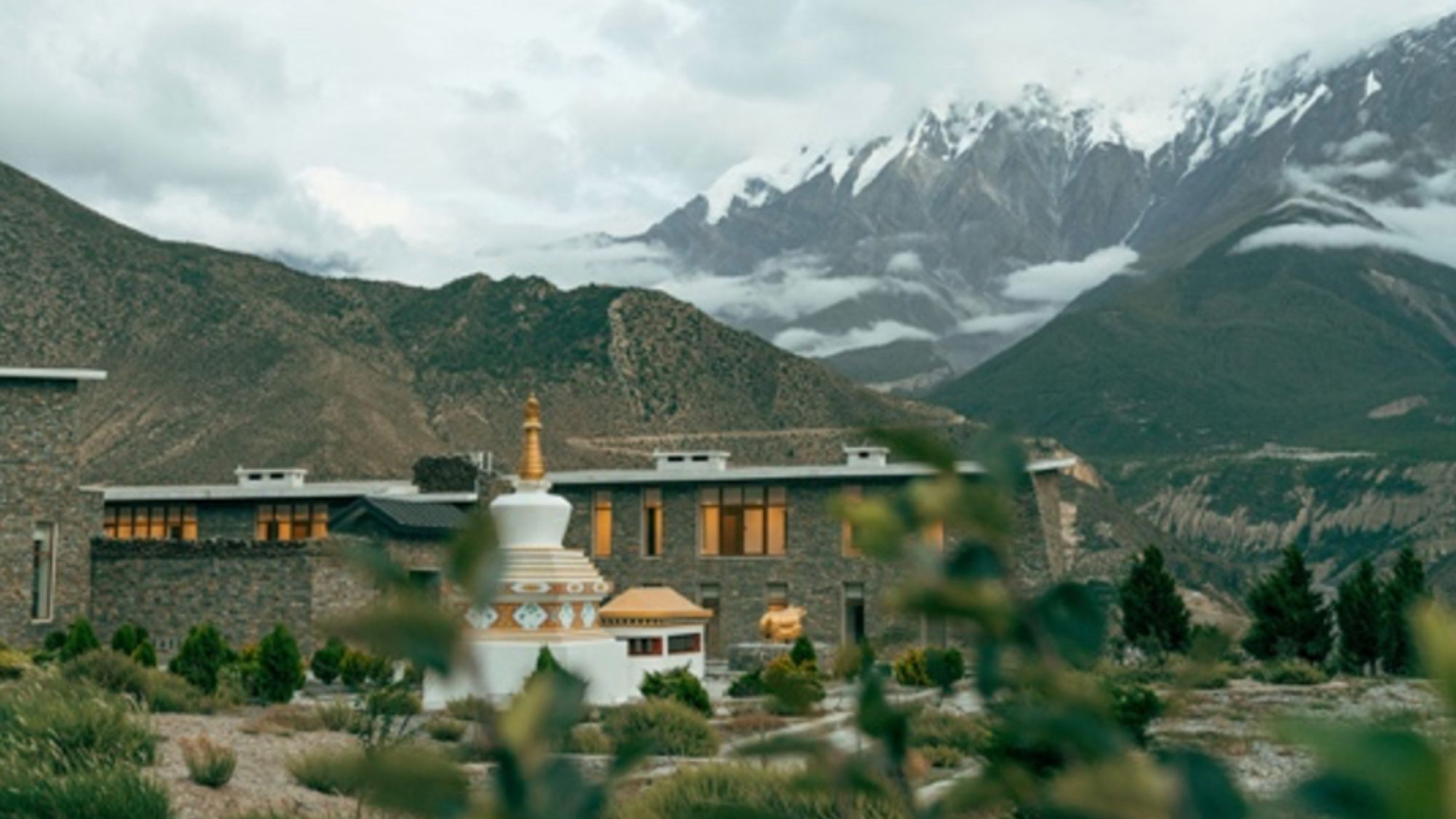
Embark on an unforgettable three-day trek
Journey into the heart of the mystical and untouched Himalayas in Nepal. Take your own spiritual journey through the Forbidden Kingdom with Pelorus, exploring the very landscapes that have captivated adventurers for generations – a privilege granted to only a few. Embark on an unforgettable three-day trek through the rain shadow of the Himalayas, leading you to the mystical kingdom of Lo Manthang. Traverse arid deserts, ancient caves and snow-capped peaks as you forge your path.
The journey culminates in an extraordinary helicopter ride back to Kathmandu, a spectacular flight between the towering walls of Fishtail and Annapurna South, granting you an unparalleled perspective of Annapurna Peak, Gangapurna and the lake town of Pokhara.
From March to May and September to October 2024; 12 nights from £22,000 ($27,888) per person; pelorusx.com
A £1m three-month family world tour
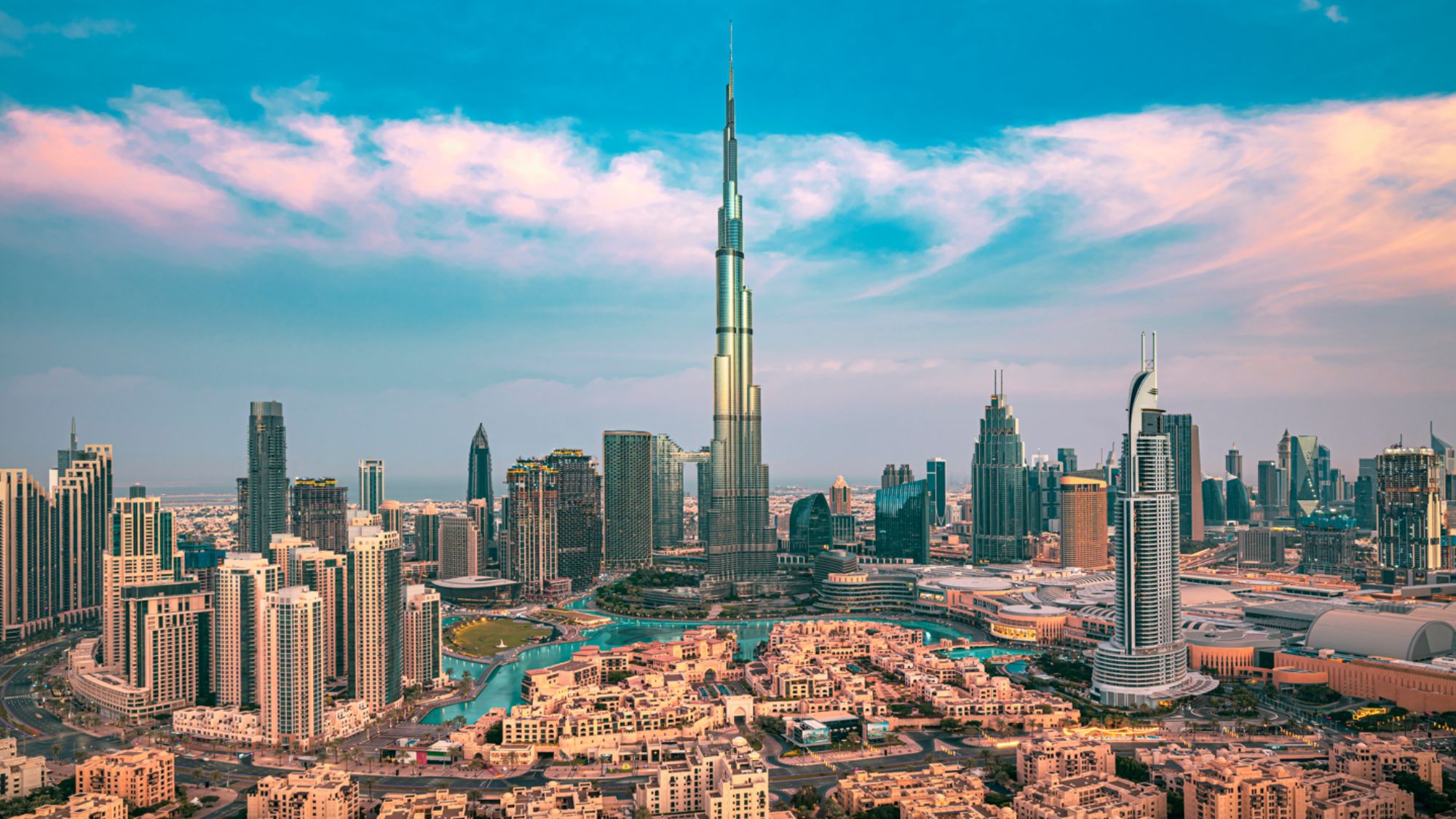
Dubai is the final stop on the £1m trip
Luxury tour operator Destinology has launched one of the world's most expensive family holidays – a three-month trip to Africa, India, Asia, Australia and Dubai that costs £1 million for two adults and two children. Departing London on 10 April 2024 and returning on 20 July 2024, these travellers will visit a total of 10 countries, and accommodation will include the finest city hotels, exclusive wilderness lodges, beautiful rainforest cabins and luxury glamping. All air travel is business class or by private helicopter charter.
Prices start from £250,000 ($316,916) per person based on four people travelling. Includes all flights, luxury accommodation throughout and excursions; tailor-made-holidays.destinology.co.uk
An expedition into Chad's Sahara Desert
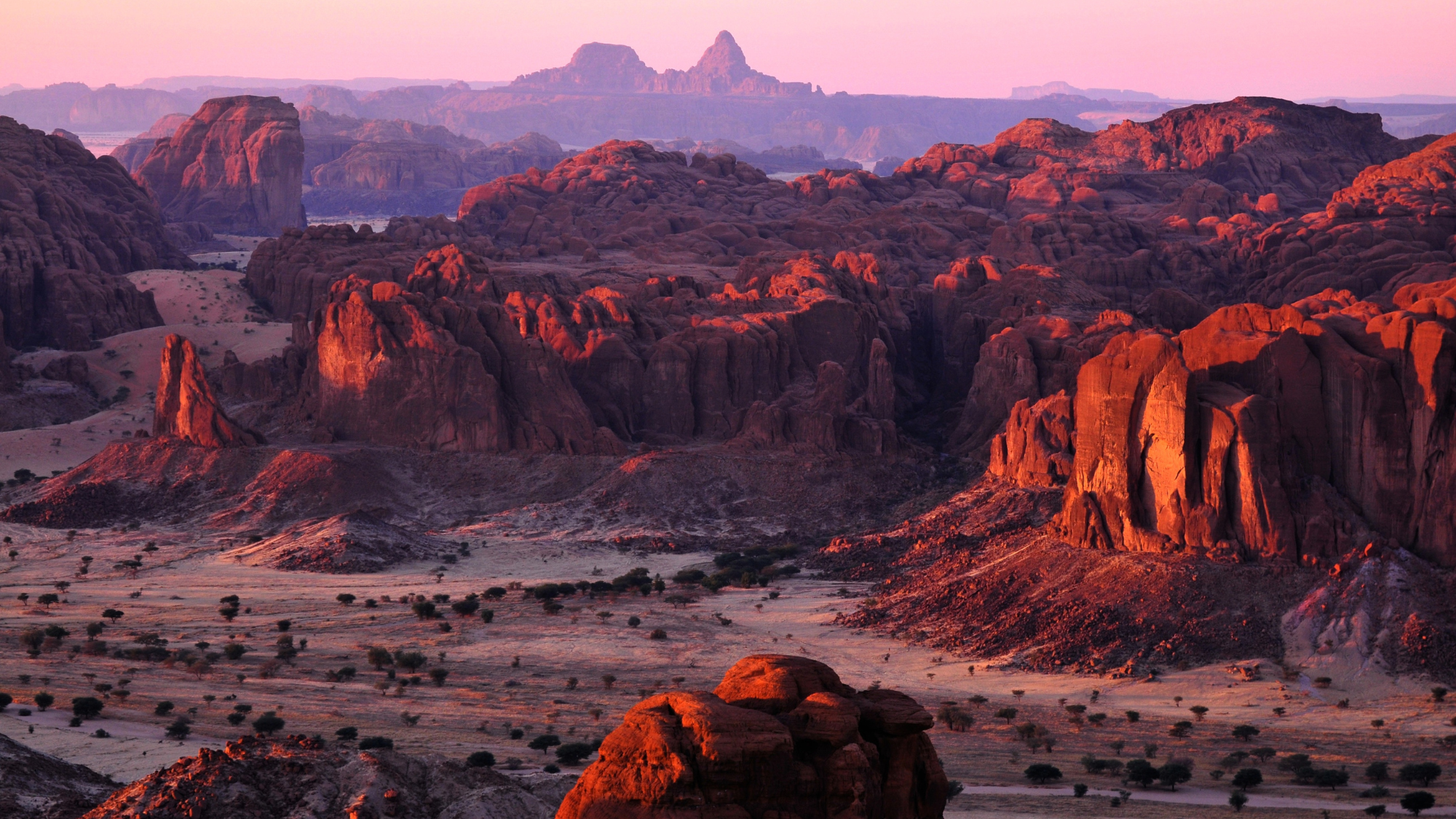
A view across Chad's Ennedi desert
Chad's Ennedi Desert is typically only ventured into by nomads and their camel trains. In 2024, Explorations Company is offering a once-in-a-lifetime opportunity for intrepid adventurers to join a small group expedition into this Unesco World Heritage site. Guests will experience a privately guided safari at Warda Camp and a camel trek across the Sahara, with expert guides on hand throughout their off-the-grid two-week trip. And to soak up the breathtaking landscape from a different perspective, a helicopter trip taking in the Tibesti Mountains and Zakouma National Park can be arranged too.
From $23,000 (£18,340) per person based on a group of six. Price is based on a two-week trip, excluding helicopter supplement and international flights; explorationscompany.com
A Swiss heli-ski safari
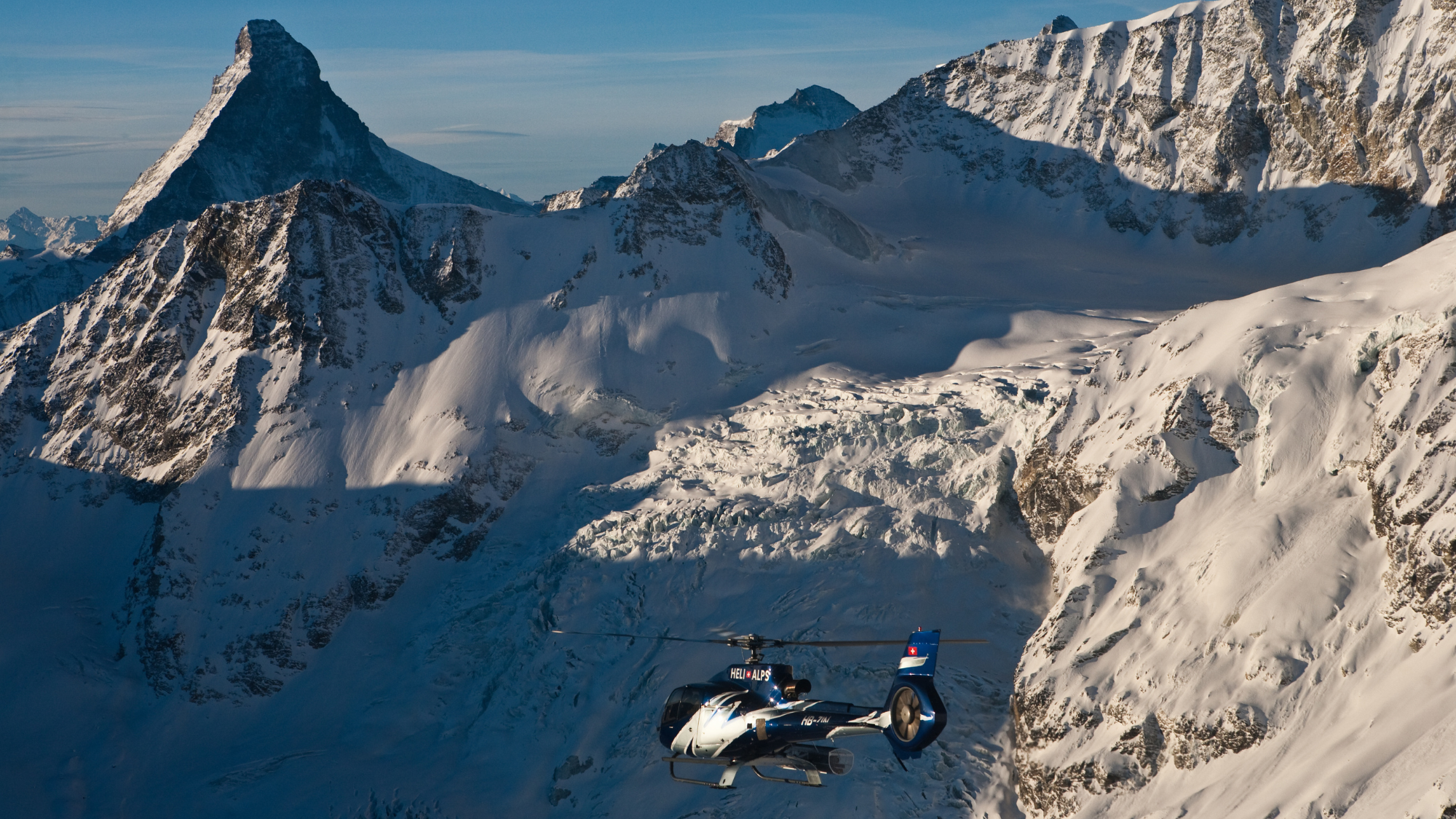
Take a helicopter to the top of some of the best peaks
Thrill-seeking skiers can take their passion to new heights with this 10-day cross-border itinerary curated by Leo Trippi, winner of the best ski travel agent at the World Ski Awards in 2023 for a record 10th year in a row. Take a helicopter to the top of some of the best peaks in the most renowned resorts in the Swiss, French and Italian Alps before carving your way off-piste, across remote mountains and down glaciers. No two heli-ski safaris are the same, with guests being encouraged to tailor their adventure to suit their preferences. And, for those looking to improve their snow skills, lessons with the likes of Marc Garcia and Jean-Jacques Rey can even be arranged too.
From CHF24,000 (£21,666/$27,170) per person based on a group of eight including transfers, accommodation, ski guide, ski passes and ski rental; leotrippi.com